



















Publishers:
Fr. Mark Wedig, OP President
Fr. Michael Mascari, OP Vice President/Academic Dean
Fr. Patrick Baikauskas, OP Vice President for Institutional Advancement
Donna Thro Executive Director, Business Affairs
Editor-In-Chief: Bridget Kostello Coordinator, Marketing and Communications
Editor/Writer: Joe Kenny
Designer: Gayle Bordlemay
Advisor/Contributor:
Steve Givens (Spiritual Direction, ’14) Member, Board of Trustees
Editorial Board: Ezra Doyle Coordinator, Center for Community Engagement and Evangelization
Erin Hammond Director of Development
Ali Meehan
Registrar and Coordinator, Academic Affairs
Samantha Messier Coordinator, Enrollment Management
Theresa Orozco Coordinator, New Frontiers in Preaching
Diane Parker
Assistant Coordinator, Admissions and Financial Aid
Photographer: Sid Hastings
To submit story ideas or to be considered to write reflections, book reviews or essays for future issues of The Aquinas Way, please email: kostello@ai.edu.
To submit alumni news and updates, please share at: ai.edu/alumni/update-your-info. Please email alumni photos to kostello@ai.edu.
The editorial staff of The Aquinas Way has made a sincere effort to ensure information contained here is accurate and correct. If your name has been misspelled or listed incorrectly, please contact Bridget Kostello at
Thank you.

Dear Friends,
We are pleased to offer you another issue of The Aquinas Way, the quarterly magazine of Aquinas Institute of Theology that features stories, news, and events about our school organized around the four pillars of Dominican life. This summer’s issue features community life, a topic dear to us as a Dominican institution, but not without a certain amount of controversy in the contemporary world.

As many of us know, we live in a society that often works against moral, religious, and specifically Christian ideas and practices of community. We are instructed regularly by incessant litanies of individualism, egoism, and consumerism that habitually create internalized values concerned with putting the self before the common good. We can easily learn to think of our dreams and our personal development as ideals that supersede communal principles, as especially embodied as Church.
Our ecclesial institutions ought to stand as counterforces to individualism, egoism, and consumerism. What we present to you in The Aquinas Way, are the varied ways in which our school lives out the values of genuine Christian community. Our feature article focuses on how Aquinas Institute functions first and foremost as an expression of the Church. Traditionally, all Catholic educational institutions have served as a unique form of the Body of Christ. At the centerpiece of our school building stands a chapel which houses an altar and ambo. Students, faculty, staff, board members, and all who participate in our mission are invited regularly to celebrate with us liturgically as the Ecclesia. St. Dominic Priory, where the Dominican friars live nearby, is a related expression of Church. Also, our theological and ministerial programs and therefore our classrooms, our commons, and even our library represent how we, the People of God, embody our ecclesial mission. Our continuing education through the Center for Community Engagement and Evangelization shows how we, as Church, engage people through life-long learning for ministry; what we Dominicans refer to as “permanent formation.”
We humbly offer you a glimpse into the life of Aquinas Institute where both the Dominican and Catholic values of the common life distinguish themselves from the societal values that often disrupt authentic community. We are happy to feature stories, news, events, and wonderful pictures that illustrate how the Dominican and Catholic virtues of community life at Aquinas come to light.
Sincerely in St. Dominic,
Fr. Mark Wedig, OP President, Aquinas Institute of Theology
a homiletic and theological symposium
March 11-14
Twenty-seven preachers and theologians from North America, Europe, and Asia met at Aquinas Institute of Theology March 11–14 for a synodal symposium on “The Pastoral Charge for Lay Catholic Eucharistic Preaching.”
The symposium participants proposed a change in canon law to allow qualified lay preachers to preach the homily at Mass. The group also recommended that the Church expand the instituted ministries of lector and catechist or institute a new ministry of lay preacher to allow for lay preaching at Mass.
Two scholars presented major papers: Dr. Edward P. Hahnenberg from John Carroll University presented on the Theology of Ministry for Lay Eucharistic Preaching. Dr. Layla Karst from Loyola Marymount University presented on Eucharistic Preaching in a Synodal Church. Respondents included Dr. Nathan Chase from Aquinas Institute of Theology, Dr. Mary Erika Bolaños from the University of Santo Tomas, Dr. Martin Madar from Xavier University, and Dr. Maurice Nutt, CSsR, from Aquinas Institute of Theology.
Aquinas Institute of Theology in St. Louis hosted the event, sponsored by the three schools of preaching in the Dominican Preaching Network: Aquinas Institute of Theology in the United States, the Institute for Pastoral Homiletics in Germany, and the Institute of Preaching in the Philippines. Fr. Gregory Heille, OP, Professor of Preaching and Evangelization and Director of the Doctor of Ministry in Preaching at Aquinas Institute of Theology, convened the event with the support of a grant from the Lilly Endowment Initiative to Strengthen Preaching.
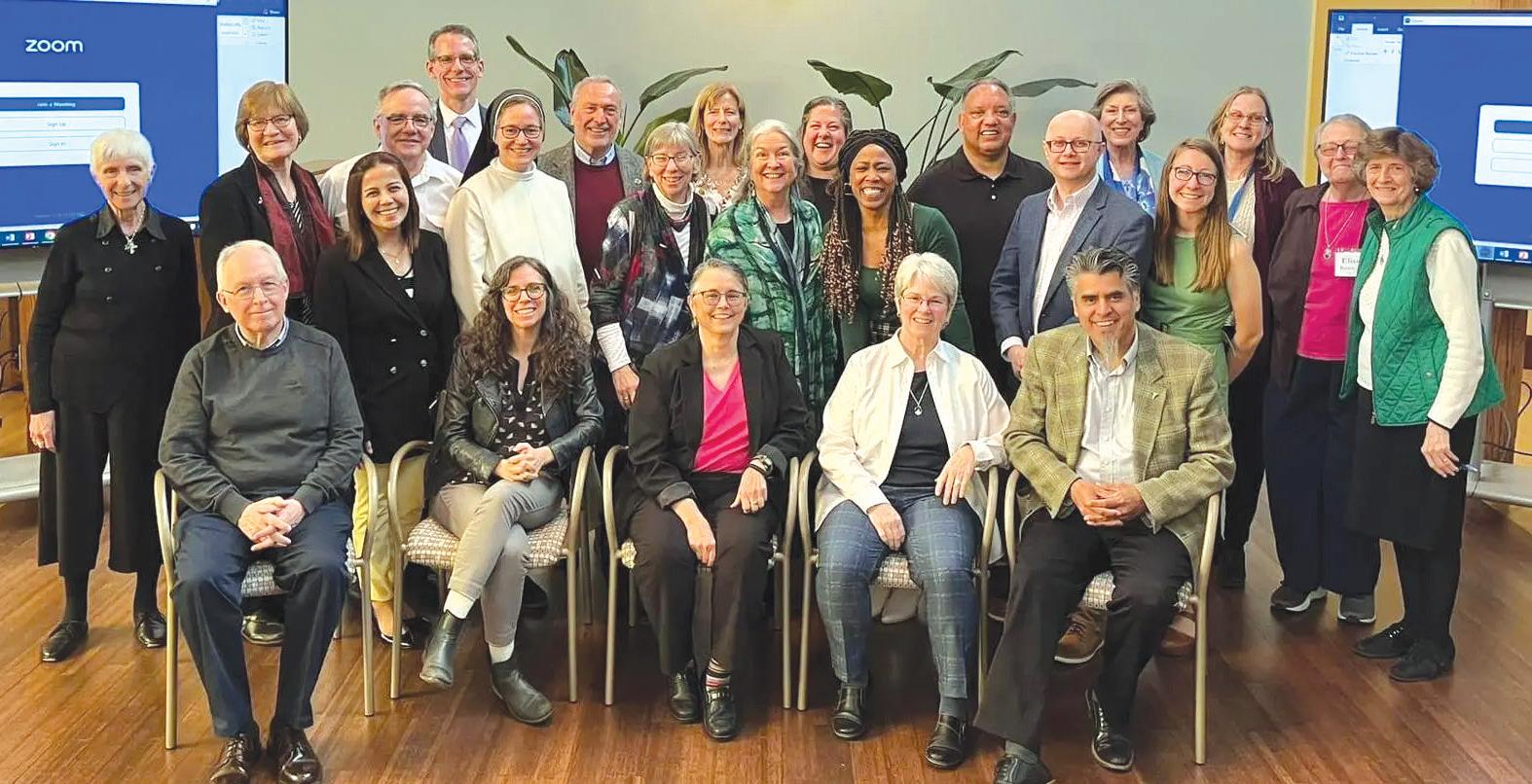
participants
Fr. Maxime Allard, OP, PhD
Kayla August, MPS
Sr. Kerstin-Marie Berretz, OP
Mary Erika Bolanos, PhD
Fr. Wayne Cavalier, OP, PhD
Nathan Chase, PhD
Emmanuel Diaz, MDiv student
Elizabeth Anne (Betty Anne) Donnelly, MTS
Megan Effron, MDiv
Fr. Tom Esselman, CM, PhD
Sr. Sara Fairbanks, OP, PhD
Ann Garrido, DMin
Edward Hahnenberg, PhD
Grant Hartley, MDiv student
Fr. Gregory Heille, OP, DMin
Ruth Anne Henderson, OP, MA
Sr. Mary Catherine Hilkert, OP, PhD
Emma Grace Johnson, MDiv student
Layla Karst, PhD
Martin Madar, PhD
Sr. Megan McElroy, OP, DMin
Fr. Maurice Nutt, CSsR, DMin
F. Javier Orozco, OFS, PhD
Sr. Barbara Reid, OP, PhD
Thursday, November 14, 2024
The Very Reverend Chris Martin, VE, the Vicar for Parish Mission and Vitality for the Archdiocese of St. Louis, will be honored at this year’s 30th Annual Great Preacher Award, which will be held November 14 at the Hilton St. Louis Frontenac.
The other nominee represents a break with the longstanding Aquinas tradition of honoring an individual. For the first time, an entity will be honored the St. Margaret of Scotland Music Ministry program.
Make sure to Save the Date to attend a memorable evening of great music and great preaching!

April 22, 2024
Aquinas Institute’s Student Services Committee held the annual spring kickball game on April 22. While the teams were more random than friars vs. laity, and it was far less of a grudge match than the yearly wiffleball games, a communal good time was had by all!
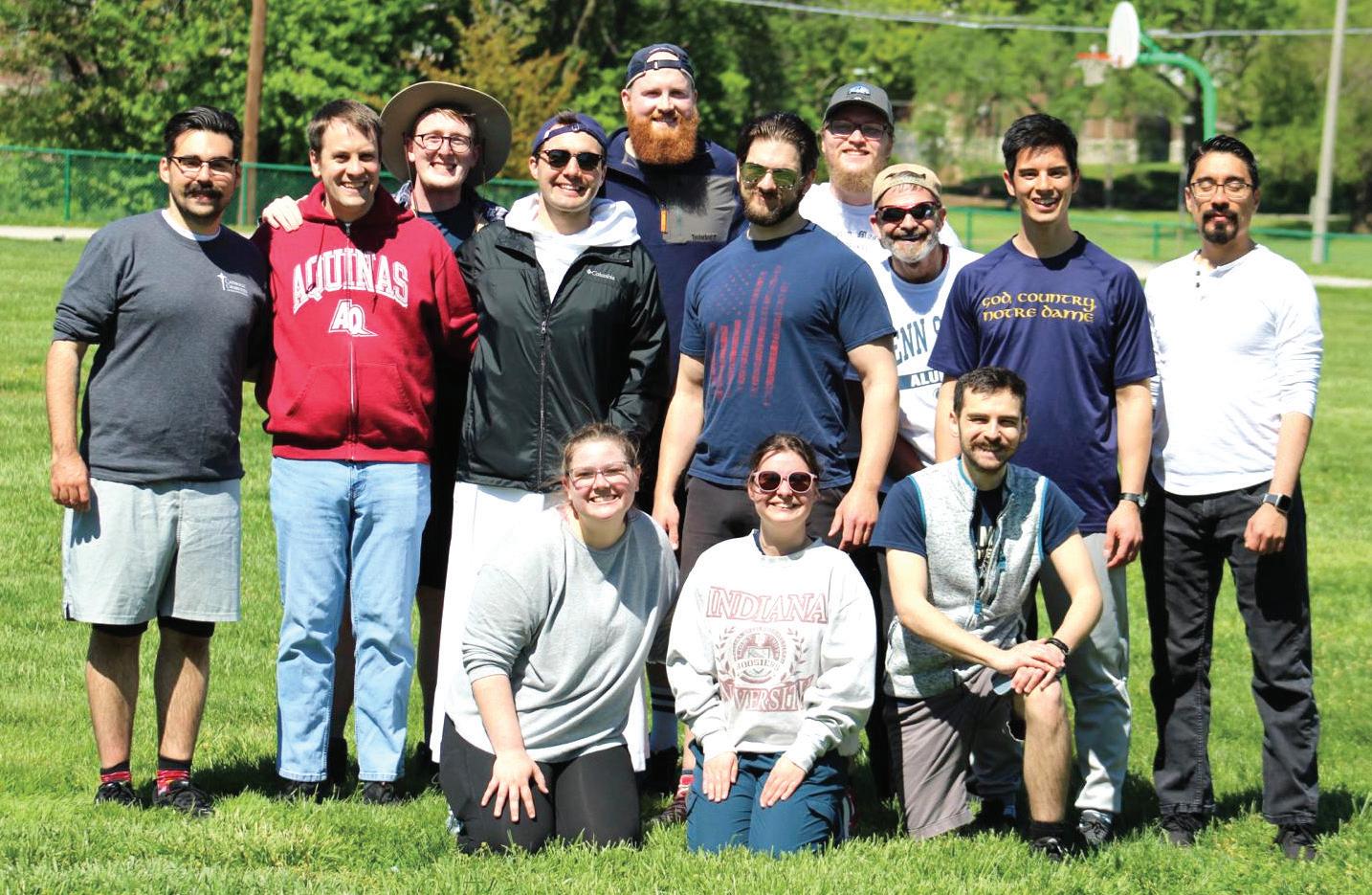
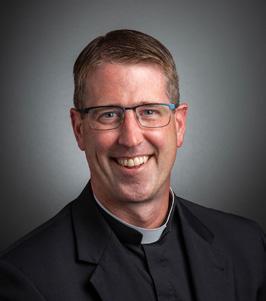
AQUINAS INSTITUTE OF THEOLOGY
hilton st. louis frontenac for more information: ai.edu/gpa
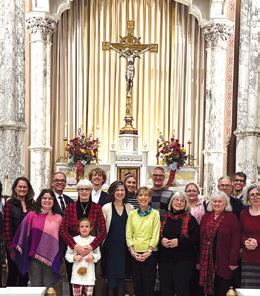
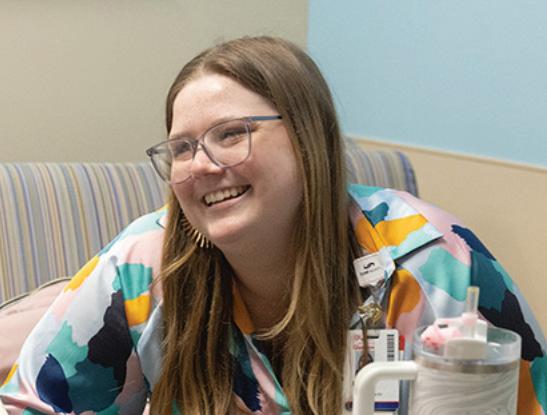
Emma Grace Johnson (MDiv ’24) was recently the subject of a profile discussing her experiences as a chaplain in the April-May 2024 edition of Catholic St. Louis magazine. You can find the article here
Emma Grace was also featured in the St. Louis Review, along with current Master of Divinity student Grant Hartley, when they accompanied about 20 high school students to hold vigil at the execution of Brian Dorsey in Bonne Terre, Missouri, on April 9. Johnson and Hartley also spent time discussing the Catholic catechism regarding the death penalty with the students. That article can be found here
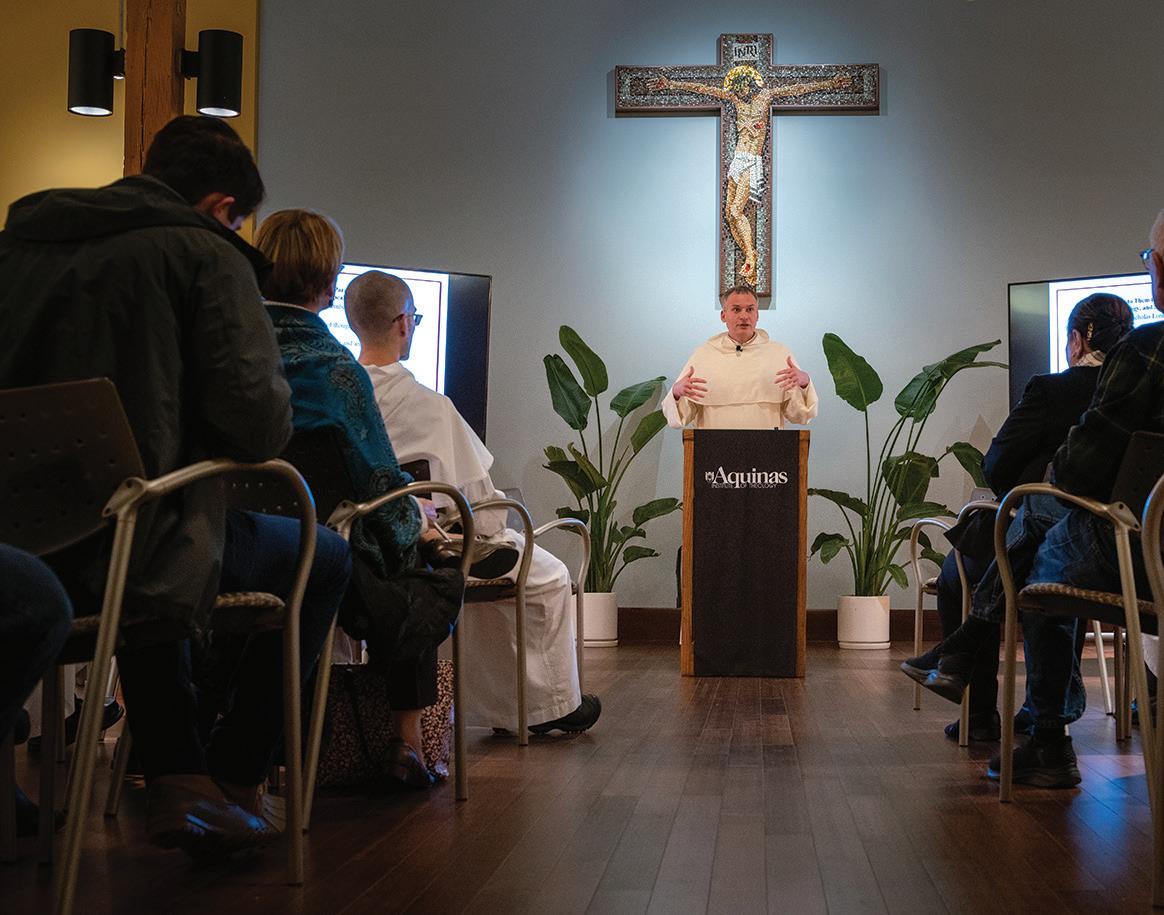
The
by joe kenny
For Katya Vail (MA ’25), the activities, classroom time, and informal gatherings at Aquinas Institute of Theology flow from a center point of worshiping and honoring Christ.
“Everything we do at Aquinas seems so central to the mission,” Vail says of the faith life, academic life, and especially community life.
“Everyone here cares about forming the people around them. There’s a kind of cheesy phrase that you raise yourself higher by lifting others up. And it really is true at Aquinas.”
At Aquinas, it’s the community that makes a difference.


One aspect that characterizes the community is its Dominican charism, where religious and lay men and women form a community of learning and faith for the good of the Church. As a center of institutional studies, it provides initial formation for Dominican brothers preparing for a life of ministry as priests or as cooperator brothers, men who are not called to ordination. Lay men and women study along with them in a complementary way. They are intertwined with the faculty and staff who support the mission of the school.
“The way we make community, or the way we are community, is around the classroom,” says Fr. Mark Wedig, OP, President of Aquinas and Professor of Liturgical Theology. “But that’s not exclusively what we’re doing just people coming and going to a classroom. There’s all the other ways in which the community forms us together.”
Community is formed also through liturgical, extracurricular activities, and an extension into the larger community. “Our school becomes a place of what we call community engagement, as we engage people outside this context,” Fr. Wedig says.
The Dominican priest strongly emphasizes that Aquinas is an ecclesial community, one with a ministry of formation and education of men and women for ministry. “We are Church. The way that someone’s parish church is a form of Church, we also are a form of Church.”
Catholic grade schools, high schools, and universities are all a particular kind of ecclesial community, as are the people who work and volunteer for Catholic Charities or the Society of St. Vincent de Paul, for example.
A certain sense of like-mindedness exists in all Church communities as people fulfill mission, but people don’t necessarily choose everyone in the community. People find themselves together in their work toward mission and are always in a process of learning to be of one mind and work,
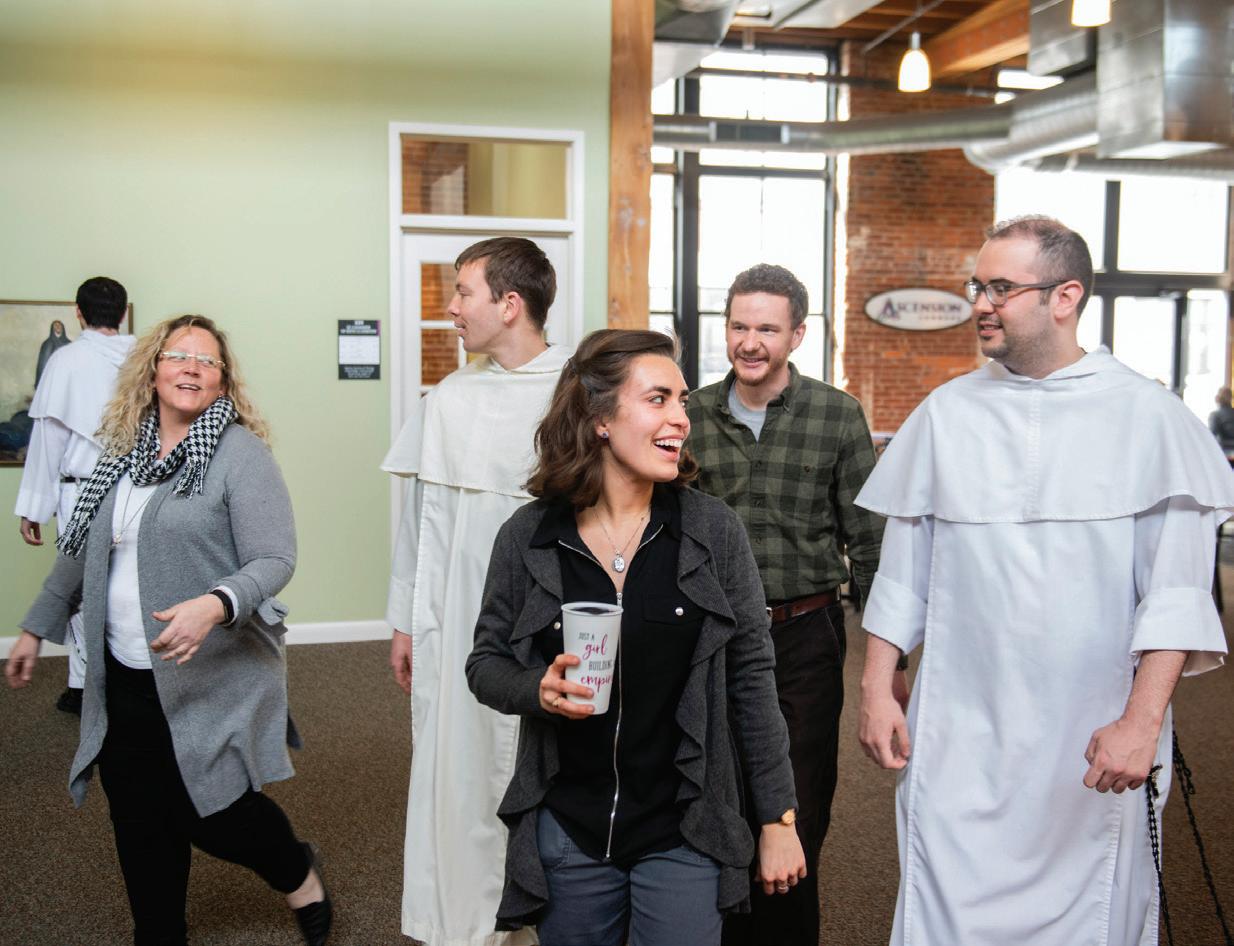
a process that takes a good bit of work. It doesn’t mean that everyone is the same or that everything that people adhere to is of the same expression, Fr. Wedig reports.
“There’s the hard work of asking, invoking the Holy Spirit to come make us one. There can be a lot of struggle there when there are differences or varying expressions in the work of being one,” he says.
Ali Meehan, Registrar and Coordinator of Academic Affairs at Aquinas, has a first-hand view of the community aspect of the theology school. “The key is that Aquinas is a community of learners,” Meehan says. “That is in line with the Dominican charism, but it is also something that is easily experienced among the students and the faculty. There’s just a sense of constant search and debate.”
Even lunchtime conversations often are inquisitive, she says. Vail, who has a bachelor’s degree in theology with minors in Catholic studies and Spanish from Saint Louis University and coordinates religious education at St. Louis Catholic Academy, says students at Aquinas feel plugged into the community from the beginning. “Things are put in place really strategically to make sure that students have the opportunity to see each other in both an academic setting and outside of it,” she notes.
There’s also what she calls “organic opportunities” that allow the community to shine. “We’re always trying to find opportunities to celebrate one another, celebrate each other’s achievements, celebrate milestones in our education. A lot of students will invite the student brothers to meals at their homes and vice versa, or go to coffee shops and study together. It truly is a place where you want to linger in the building to be with people or linger (elsewhere) with those people because they’re so special and you’re edified by the conversation.”
The student brothers who live together in community bring that togetherness concept to the lay students, Meehan adds. “By knowing each other and being comfortable with each other, they inspire that same level of comfort among the other students.”
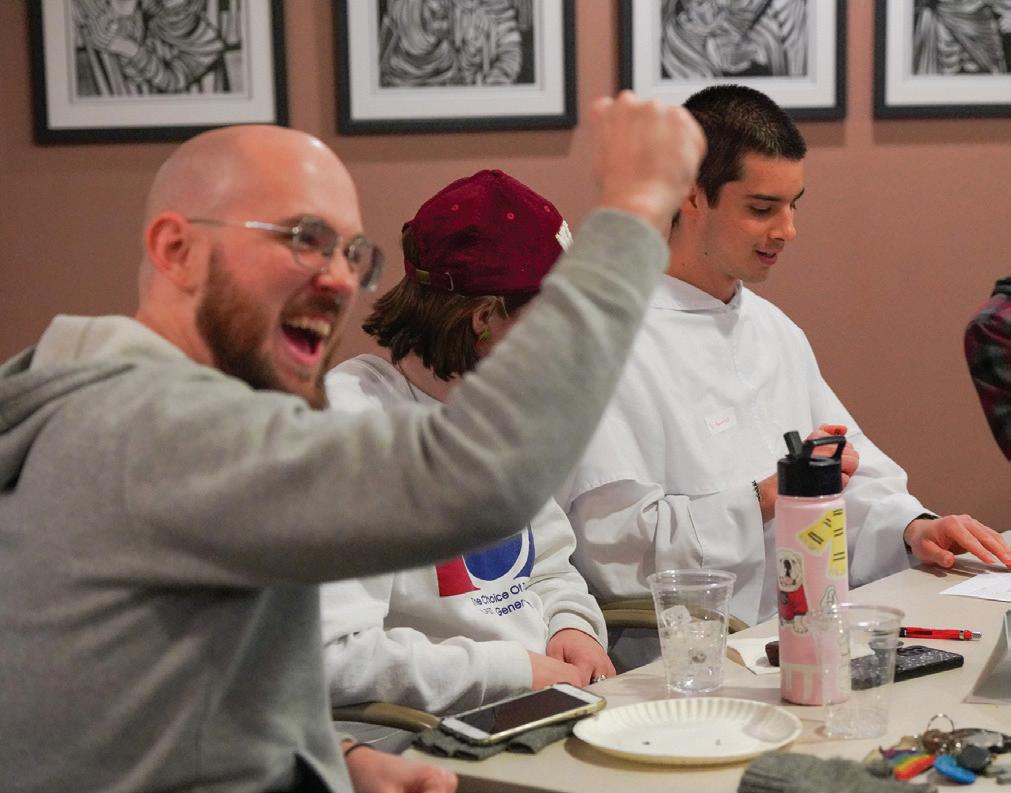
Events with the student services committee and new student orientation help, but students quickly find out that Aquinas is “a space to know and be known,” as Meehan terms how the decision by students to study theology and know more about how God brings an understanding that they come to know God by knowing and loving their neighbor. It brings a much deeper layer than surface-level conversations.
Meehan schedules courses to facilitate community, planning around community Mass or overlapping spaces to allow for interaction with a larger grouping. In student services, she and Samantha Messier, Coordinator of Enrollment Management, assist the student services committee to support community-based events, such as weekly adoration, kickball games, wiffle ball games, fish fries, study days, and more.
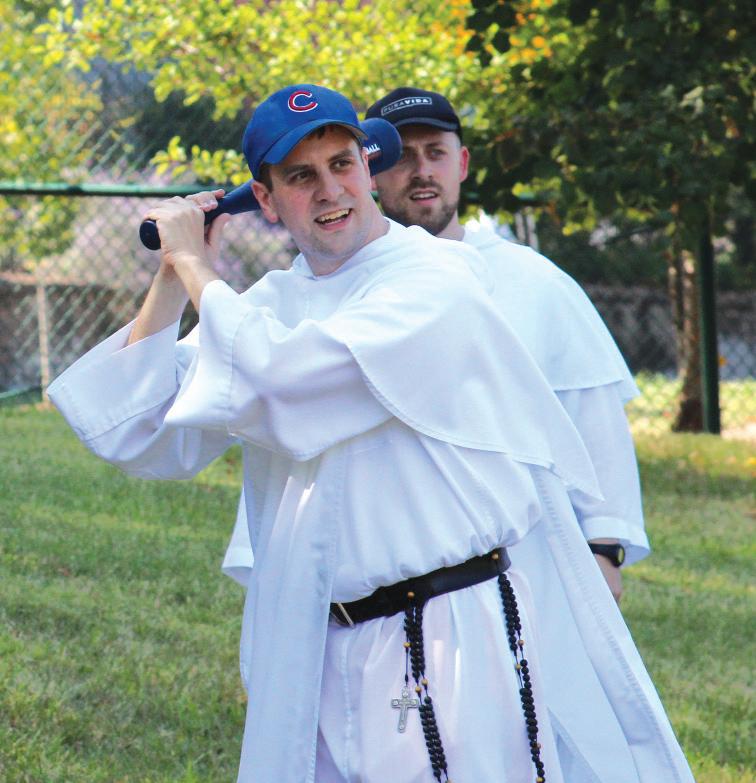
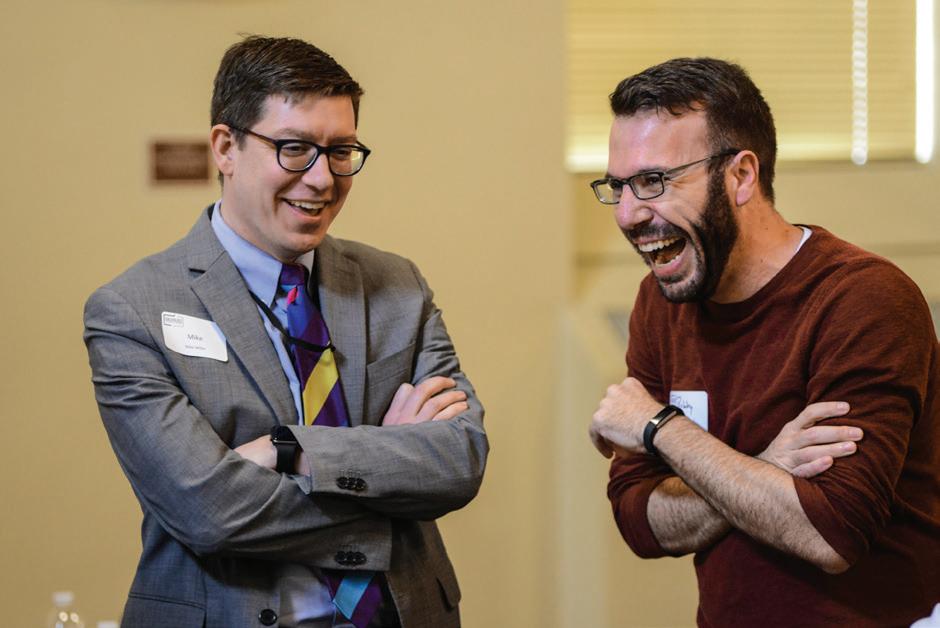
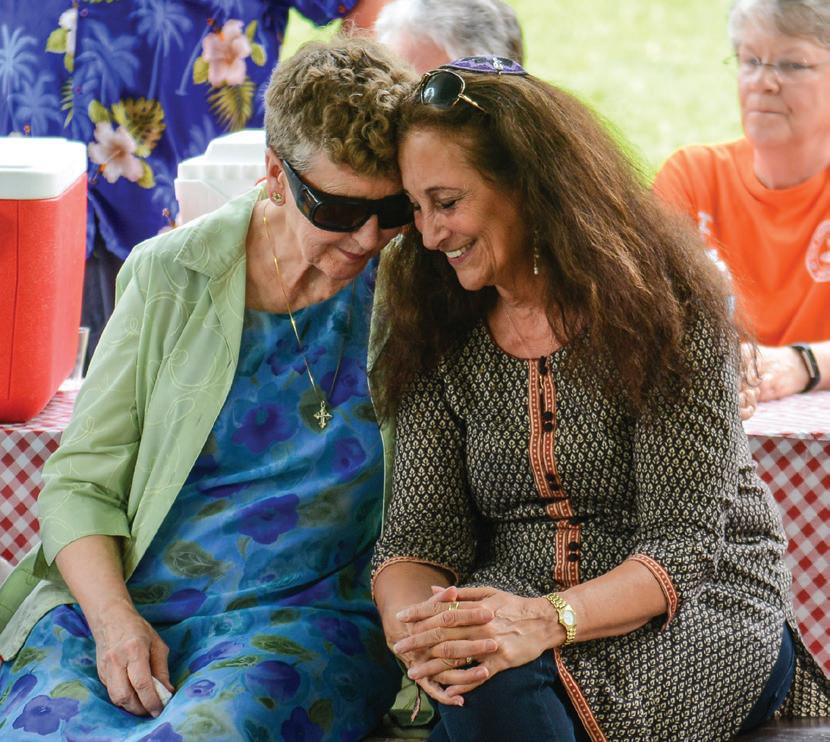
It’s part of the effort to help students be multi-dimensional in their relationships with each other, a camaraderie and all that goes along with friendship.
Emma Grace Johnson, a 2024 graduate who works as a chaplain at Cardinal Glennon Children’s Hospital and a youth minister at St. Margaret of Scotland Parish in St. Louis, says community is formed at Aquinas through the various contexts, including conversations on faith and in prayer.
Johnson, who grew up in Georgia, desires to help people access the Church “in whatever way we can get them to show up.” At Aquinas, she’s built on the connection her high school youth minister showed her between Christ’s love and relational ministry. Aquinas adds to that as a strong Catholic community that holds one another accountable and helps each other be better ministers, she says.
Fr. Michael Mascari, OP, Vice-President and Academic Dean at Aquinas, observes that the Dominican student brothers and lay students serve as a kind of leaven for each other. Their lay peers bring a perspective and understanding that enrich the brothers, and the brothers do the same for their lay classmates. Although most of these students are in their 20s and early 30s and look at the world in a similar way, their different vocations, Church perspective, and ministerial goals enhance the learning experience.
“It’s important for our Dominican brothers to have this experience because they will engage with the laity throughout their lives and will need to be attentive” to their concerns and questions, Fr. Mascari says.
The Dominicans view an academic community as one with teachers and learners, but the teachers aren’t always the professors and the learners aren’t always the students. “In this community, there are occasions where I, as a professor, learn quite a bit from the students. The students learn but they also teach us,” the Dominican priest says. Distinctions and variations exist, but together they form a community regardless of their roles.
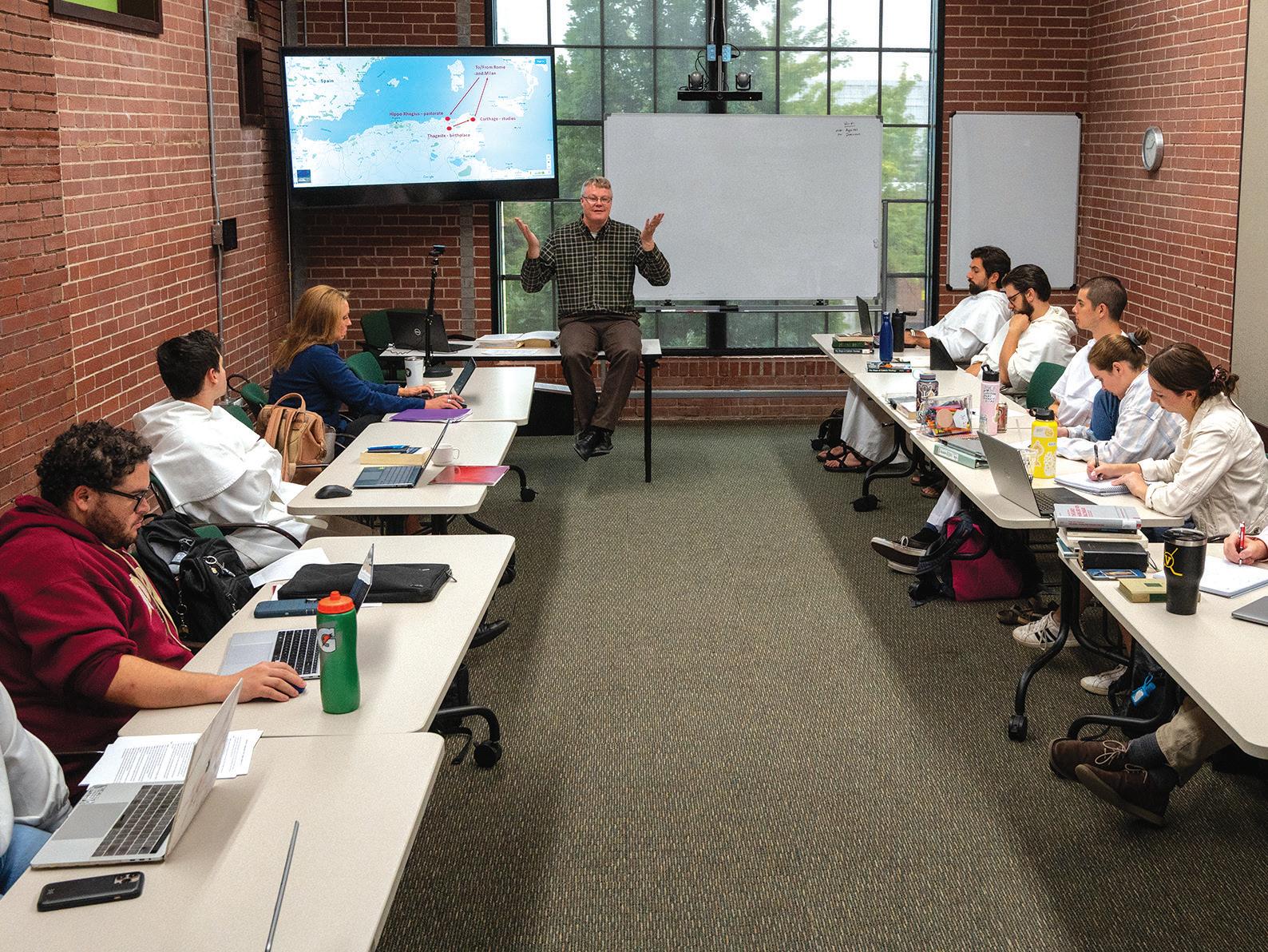

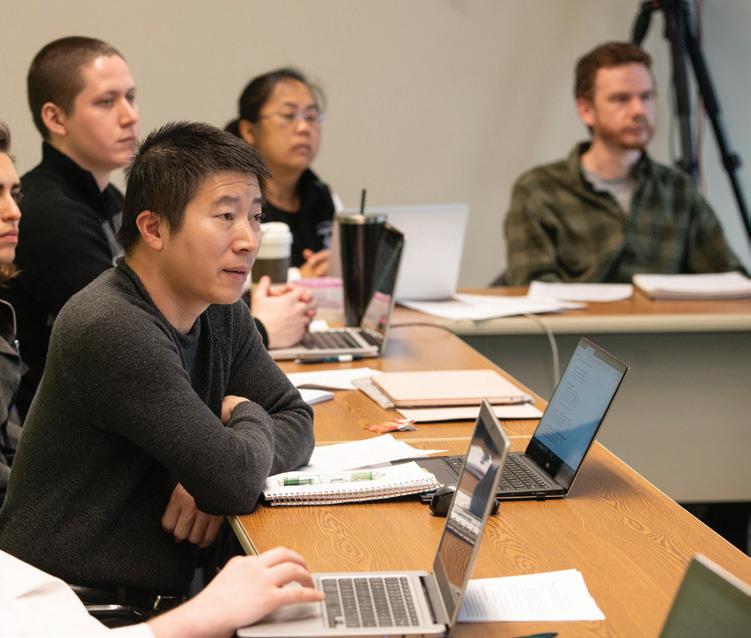
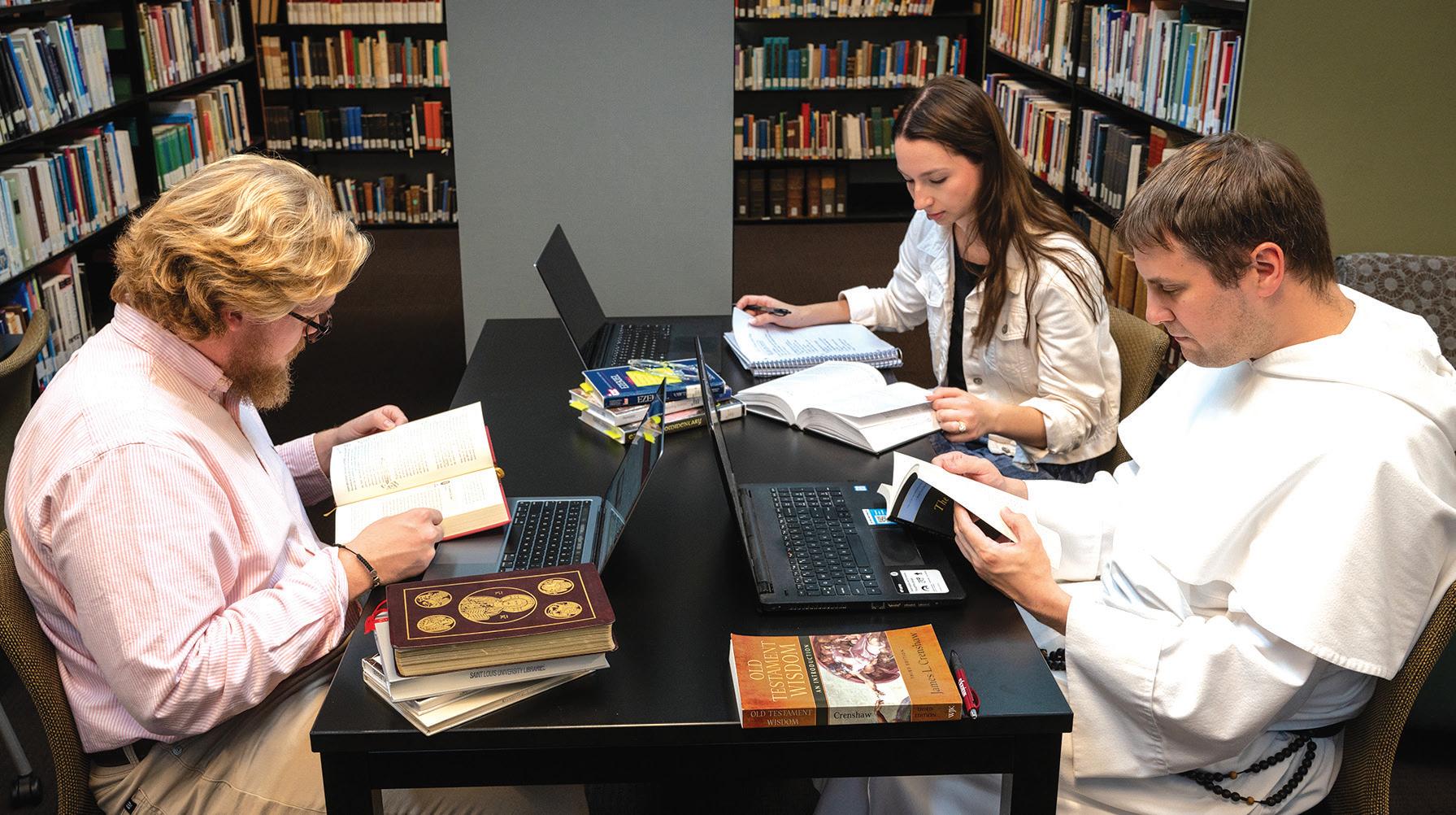
What distinguishes Aquinas Institute as a Dominican school of theology is the pursuit of the truth of Jesus Christ. “Veritas, or Truth, is the motto of the Dominican order, but we don’t understand truth as an idea or concept, but as a person,” Fr. Mascari notes. “All theological education for us has as its goal the pursuit of Christ. Not that we ever claim to completely know Christ or understand Him and His will for us, but we pursue the Truth of Christ in the hope of learning more and more what are the deepest truths of our faith, what is the mystery of God, always recognizing that there will always be more to know and understand.”
The lay students at Aquinas appreciate what they have learned from the Dominican brothers attending Aquinas. Grant Hartley, a second-year student in the master of
divinity program at Aquinas, relishes the discussions in classes, during breaks, and after classes. “It’s been really encouraging to build relationships with student-brothers to see the Church from a new angle, learn from each other, and grow together,” Hartley says.
Aquinas works to instill in students a relationship with God, a lifelong process of deepening faith, understanding, and a knowledge of who Christ is. It’s sought in the study of Scriptures and the understanding of the rich tradition of the Church including the patristic writers, the doctors of the Church, the teachings of St. Thomas Aquinas, and the thought of theologians past and present. Fr. Mascari

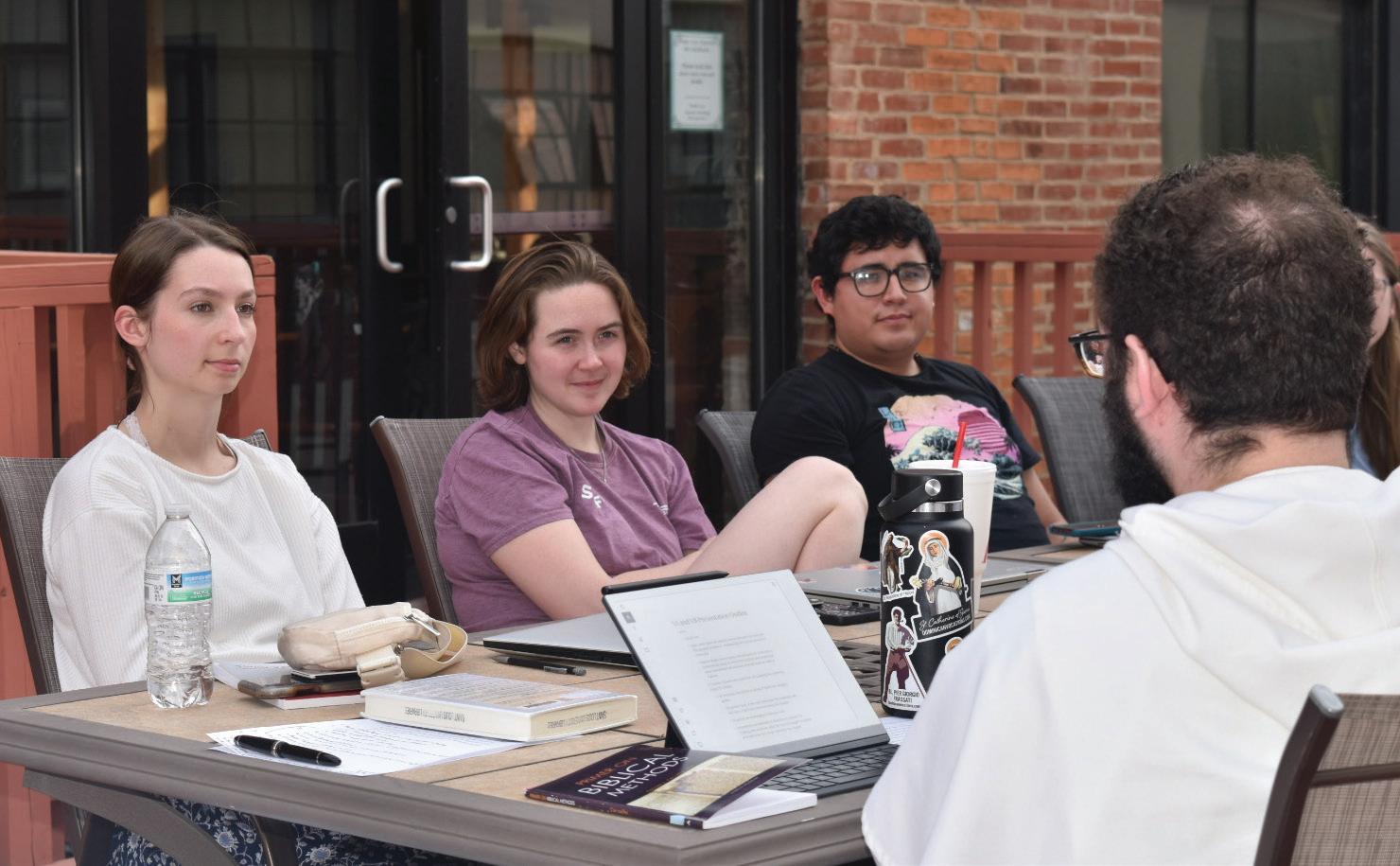
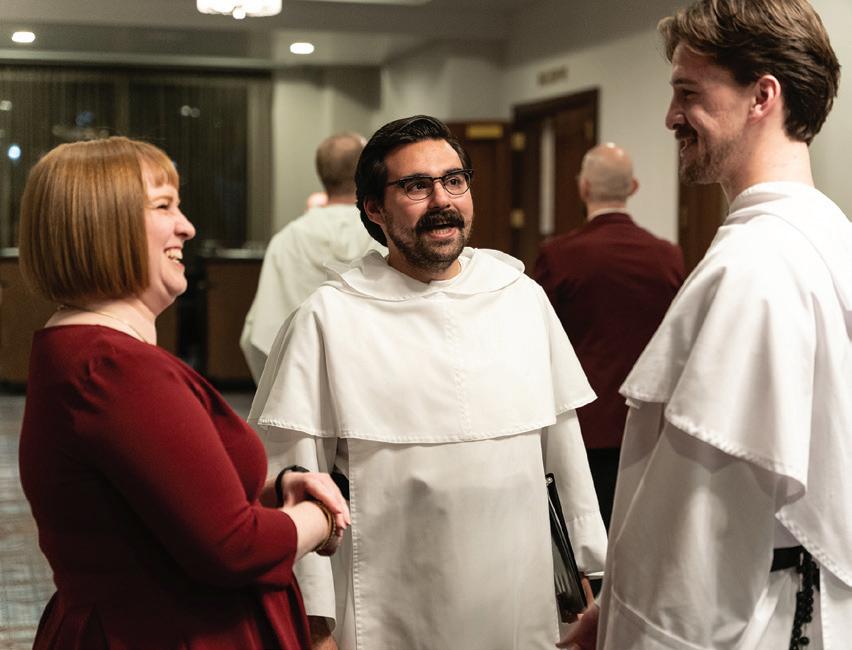
adds: “Moreover, the people we meet in ministry provide a perspective that’s not found in books. They help us to come to a deeper sense of who Christ is and how He is active in our lives.
“The men and women we minister to also become in a way the pages of the books we study. When we’re talking of community in a Dominican school, study for us is not something that I as an individual pursue by myself. I can’t do it by myself. I can only do it with others. It’s only when I’m among others that I can begin to come to a deeper understanding of who our Lord is and what our Lord is calling us to.”
It’s a profoundly Catholic understanding of what study is “because as Catholics we always understand ourselves as a part of a community, the Body of Christ. As Dominicans who live together in community, we see our schools as reflecting this communal dimension,” Fr. Mascari says.
For Dominicans, dialogue and conversation are essential for the task of study. It involves give-and-take in a classroom, engaging in questions in a way that goes back to the practice of disputatio in the Middle Ages, when students debated both sides of a question in order to come to a deeper understanding of what was really at stake. “That in some ways is the genius of the Dominican understanding of study,” Fr. Mascari says. “You’re not simply presented with a single position.
You’re invited to really explore different ways people have understood an issue and then think your way together to a deeper grasp of what of what the truth is, who our Lord is, and what our Lord is calling us to.”
Vail, the first-year master’s in theology student, recalls times when she entered the classroom thinking she had the perfect answer or a passion for a position but after discussion found that what a classmate offered to the conversation softened her position or led her to see it in a different light.
Her classmates also sharpen her. “It really is the type of place where students talk to each other about how to achieve their best and help each other to grow,” the Wisconsin native says. “You find yourself being formed by those around you in a natural way. It’s softening your rough edges in places or sharpening you in the ways you need sharpening to be more courageous or be more clear in what you want to say.”
The professors also know when students need a push or a pause to think deeper, Vail adds.
The Aquinas community, in addition to the focus on study, reflects a spiritual dimension. Mass is celebrated as one part of that praying community.
Gathered for the Eucharist, in the eucharistic prayer and when receiving the Body and Blood of Christ, the Holy Spirit
comes down upon people in the community to make it one. That acknowledges the work of being one. It’s a contrast to some of the community-making in the secular society today.
The greater culture does not understand community in the way of the Church, Fr. Wedig points out. “The greater society very often unfortunately has become more and more tribal in the world in which we live in. People just want to be with their own kind. We hunker down and throw grenades at everyone who’s not like us in the society we live in. We see it in the political polarization, even sometimes it tries to make its way in an ecclesial polarization. But that’s not true Church.”
Aquinas aims to be a true Church community. Its strategic plan stresses being In Medio Ecclesiae, meaning to minister, preach, and teach from the middle (in the midst of) the Church. “It doesn’t mean that we’re all middled down. But we do stand in the middle in order that we might be one related to this hard work of becoming one,” Fr. Wedig says. It’s a phrase related to St. Dominic, who preached and ministered from the middle of the Church, proclaiming the Gospel and Church teaching.
Sharing differences of expression has a positive element. “We all believe the same thing. But we also have to be attentive to the fact that there is an inculturation of the Gospel, and even the inculturalization of the Church’s beliefs and messages gives unique expression to things. This is very much alive in a theological school. That is part of the character of community here,” the Aquinas president says.
Meehan points out that students attend Aquinas because they have a love for Christ and the Church, but their expression
varies according to age group, for example, or other forms of diversity. “All of those can exist in tandem in a very healthy and communal way,” Meehan says. “We have students who are on the more traditional side of things in how they prefer to worship. We have students who are very social justice oriented. And we have students who just want to dive into text and Scripture. All of those students can be in the same classroom discussing and debating topics without a point of contention or a priority other than care for the other person.”
Community extends outward, also. The Center for Community Engagement and Evangelization is an effort of Aquinas to engage in outside communities to bring people in and also to go out with the school’s mission--to involve people in education and formation and to listen to various perspectives of people, including those interested in being a part of the mission of the Church.
The Center offers continuing education programs focused on evangelization, a community resource and space for dialogue on social, cultural, and religious issues. Ezra Doyle, Coordinator of the Center, says it’s a matter of intentionality, “asking who is included, who has been invited, who is missing and why are they not here. What barrier do they have to wanting to be with us? What barriers do we have to wanting to be with them?”
For more on the Center for Community Engagement and Evangelization, see page 14.
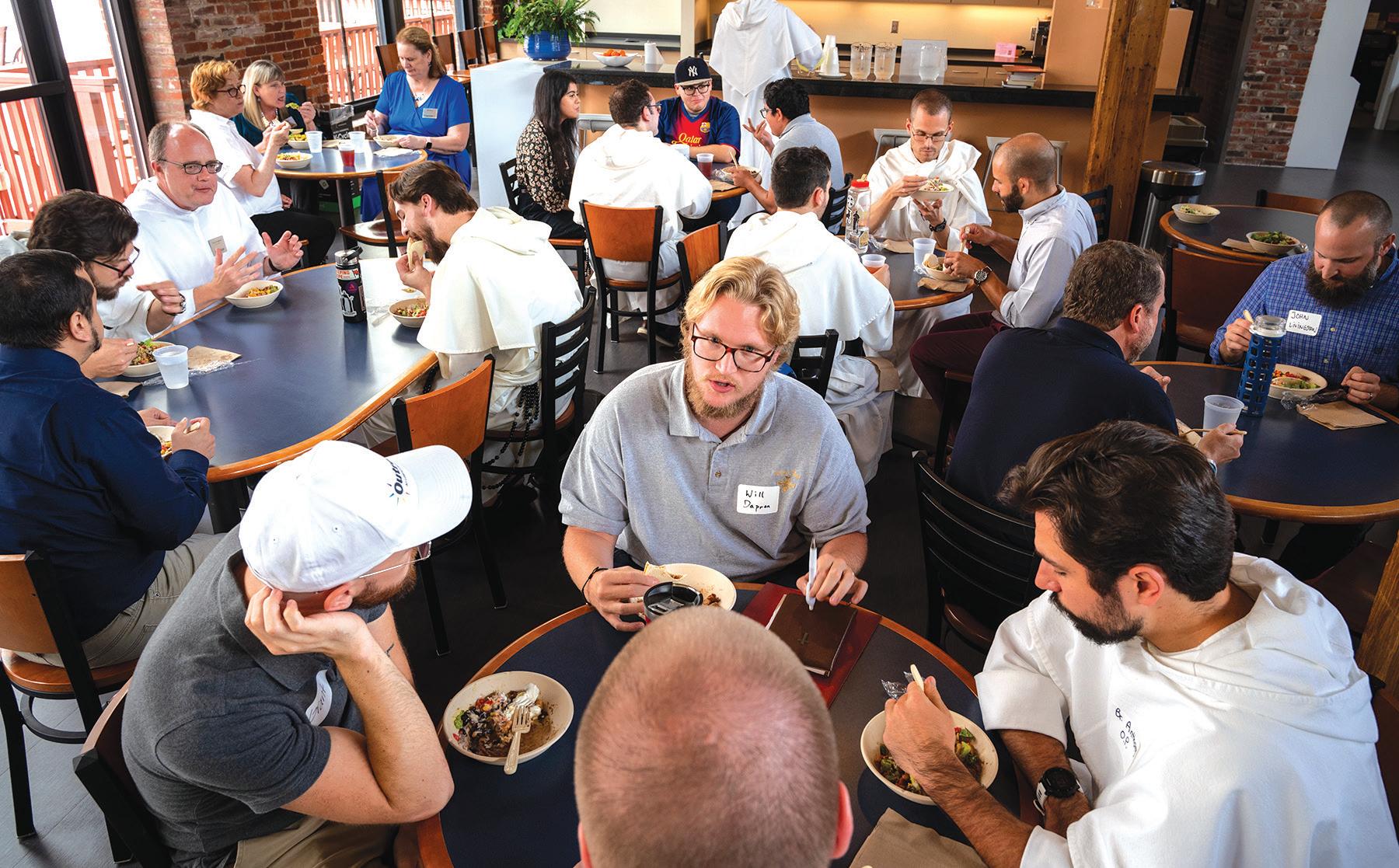
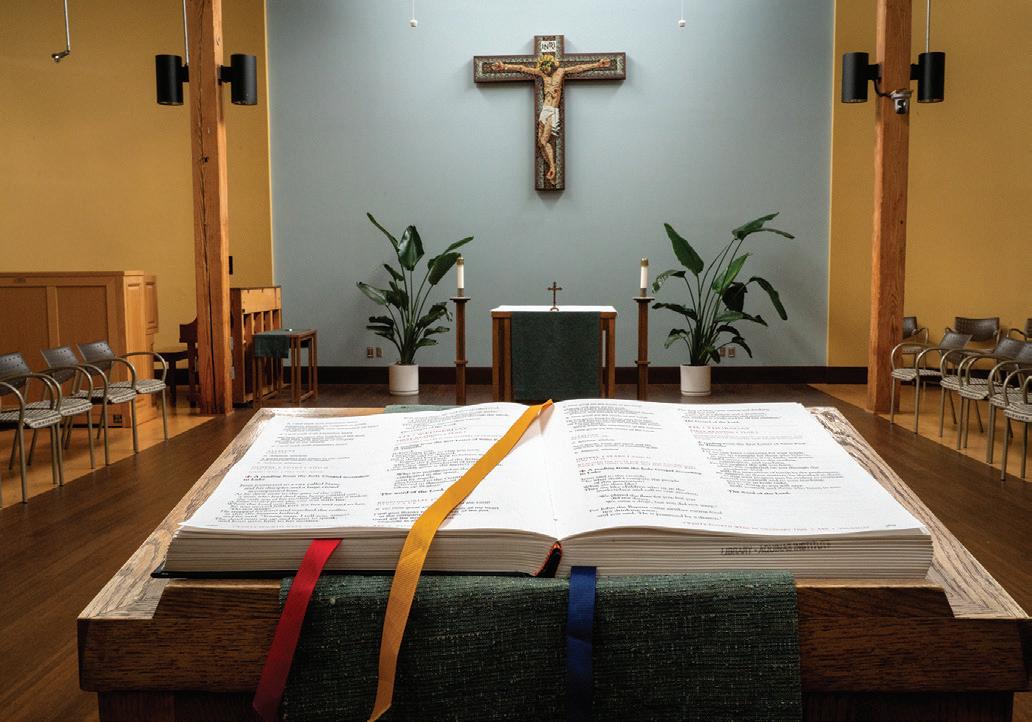
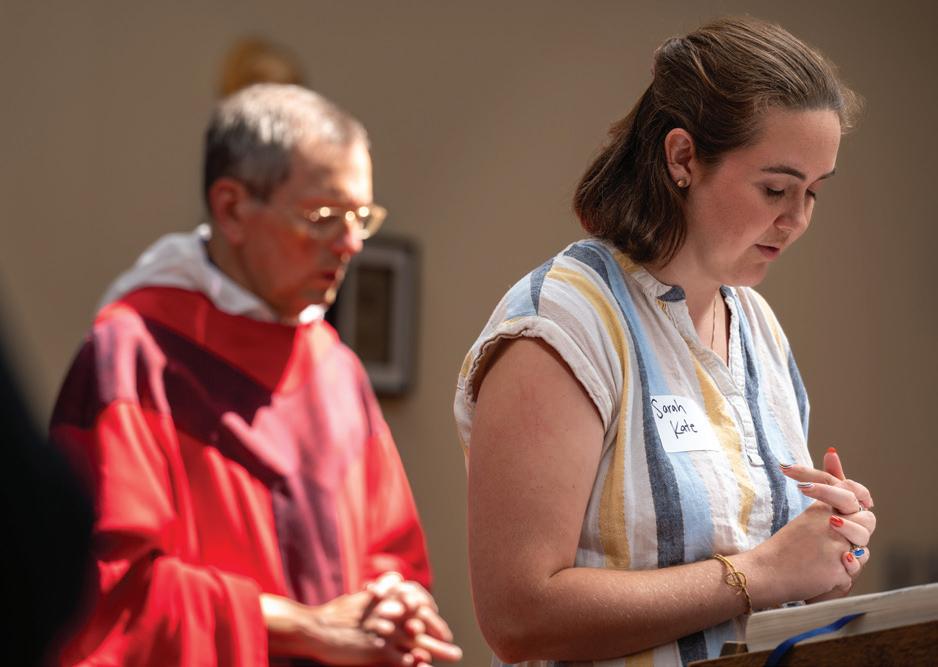
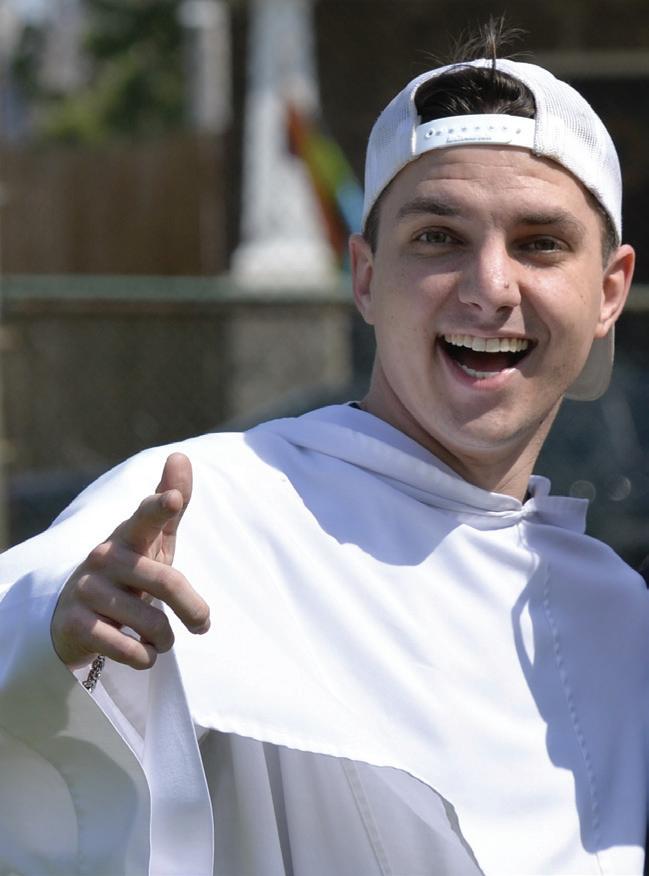
Living in a Dominican community brings joy and connectedness, Brother Dominick Jean, OP, learned even before he began formation. He lives at St. Dominic Priory in St. Louis along with some 29 other men and is on track to be ordained a deacon next year, then to the priesthood.
An Indiana native, Brother Dominick studied journalism and history at Indiana University, and planned to make journalism a career. “I was really intent on telling stories,” he says of his days as a student photojournalist and newswriter. “Storytelling is what connects us and makes us the most human.”
Brother Dominick was involved in the Newman Center in college and met the Dominicans there. He did a study abroad program in Australia his senior year, attending a Dominican parish there and hanging out with the community of men, doing some discernment. “I walked away from those weekends and conversations really edified by the group of intergenerational men from their 30s up to 80s who somehow shared a mission, a joy, and a life together.”
It became clear to him later that it was “home”—a place to be seen, known,
and loved while sharing a life together along with preaching the Gospel of Jesus Christ. He and other men who choose the Dominican order are attracted to the community life, living in a priory, and having time together in prayer and daily life.
“There’s a joy in being in relationship with people, there’s a joy of being connected with people. Both of those aspects are important to a lot of people today. People want to be happy, people want to experience joy, they want to feel fulfilled. They also want to feel connected. Nobody goes into a job, a ministry or a vocation seeking to be miserable.”
When he saw Dominicans in “this celibate, community life together thing,” they were “happy, so joyful and that was so compelling. That is what I was looking for. Once you enter into it you discover in a deeper way that the joy is based on the Lord, it’s based on Jesus. We all agree that Jesus gives meaning to our lives, that Jesus brings us that joy, that He is that Good News. Now that we have experienced that together we want to share that, we need to share that.”
In a world that’s so divided, Brother Dominick says, it’s important to show that men and women in the Dominican communities can live together in a love, harmony, and joy based in Christ.
One of the common Dominican expressions is “to contemplate and share the fruits of contemplation.” It’s not enough to pray, work and spend time together at meals and recreation. “It’s not just so we can be holy on our own. That’s not how it works. We grow in love and holiness as a Church, as a community in the world. The Dominicans are the Order of Preachers.
We have to preach the Good News, we have to preach the Gospel.”
Dominicans sometimes call their priory or convent “the holy preaching” because their way of life is the preaching. “The fact that we can live together gives witness to that, going out to share to others. That reciprocity brings about this sharing of the Good News,” explains Brother Dominick, who uses his background in storytelling to bring people into what he calls “the big story” of the Gospel and salvation.
Going out to events such as a trivia night or going out for a walk or a coffee shop are ways the brothers get to know each other and share their lives. There’s a lot of routine as well as flexibility, he adds.
Attending Aquinas Institute of Theology is a two-way street. “The friars and our fellow lay students form each other. Our formation is about mutual enrichment of each other. We are going to be working with each other in the field that is the Church. In our classes we get to grapple with theological concepts together and share where those concepts are challenged by our experiences in the world. We have lay students who are both very fresh and young and also lay students who are older and have lived a lot of life. It creates a very rich environment for grappling with the practical and pastoral implications of what we are studying.”
Community is sometimes difficult, Brother Dominick says. “In that tension we find a path to knowing each other better and loving each other better if we are attentive to how the Holy Spirit is moving. There is fruitfulness, growth, something that spurs us on to knowledge and to love.”
Live and Proclaim the Word ~ Vive y Proclama la Palabra

For Permanent
and Pastoral Leaders serving the Black and Hispanic Catholic communities
As master preachers, these deacons and lay pastoral associates must possess the professional communication skills for genuine competency in preaching and homiletics, with a clear understanding of the ministry of preaching and an ability to integrate the biblical, theological, liturgical, historical, and homiletic disciplines of the Church with sound scriptural, congregational, and cultural exegesis.
[all sessions held 7:00 – 7:45 p.m. cst] Thursday, August 29 Thursday, September 12 Thursday, October 24


CELEBRATING ITS FIRST YEAR
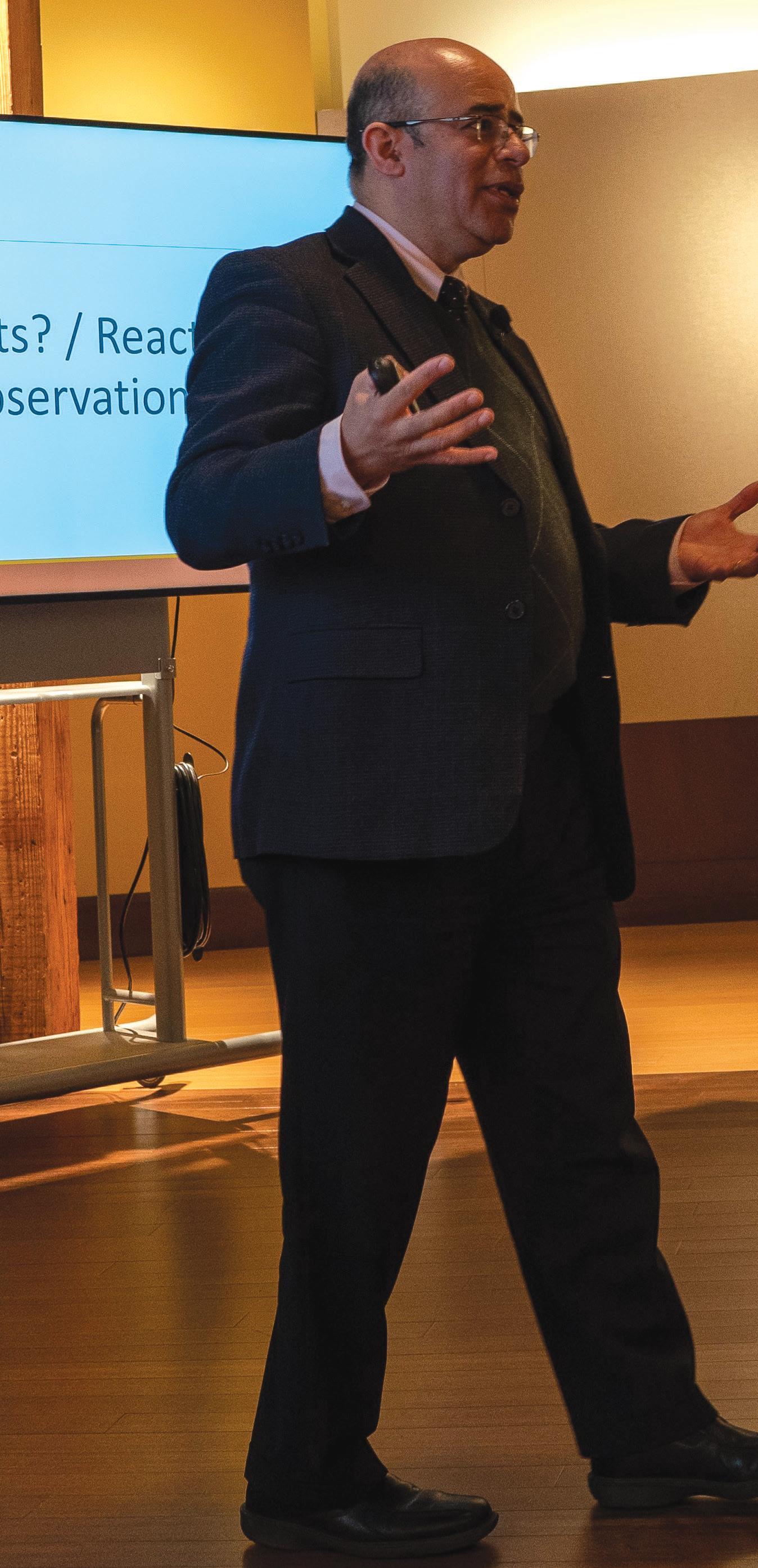
With a desire to better define how the Aquinas Institute community can better relate to and serve society and the Church, The Center for Community Engagement and Evangelization was established in the summer of 2022.
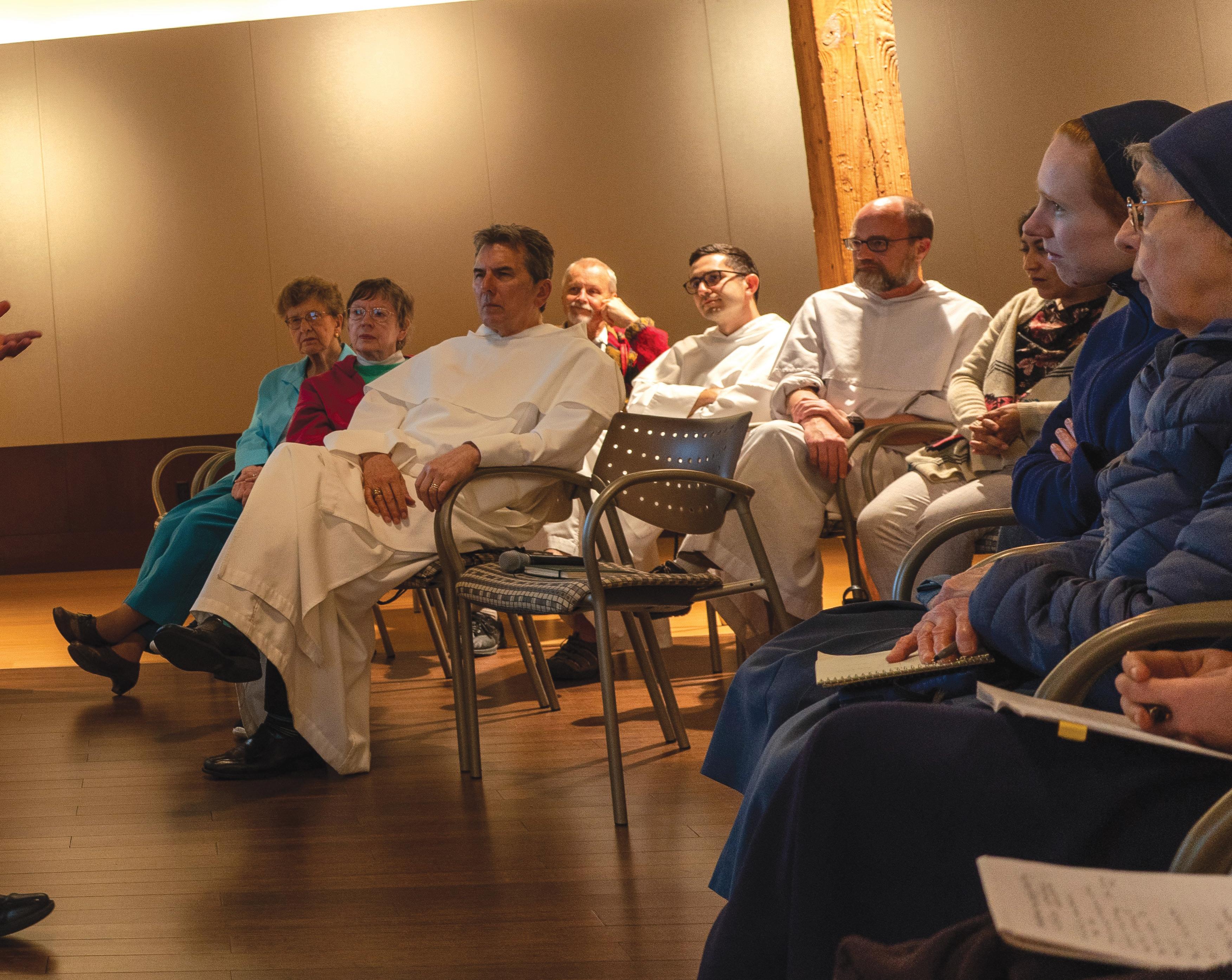
Made possible by a generous $1 million grant funded by the Pathways of Tomorrow Initiative from the Lilly Endowment, Inc., the Center was created with the goal of helping those with a desire and need for continuing education to continue lifelong learning for ministry. Many professions benefit from having practitioners who continue their education and hone their skills; the Church is no different. Growing in new ways of comprehension and sharpening competencies are crucial in the lifelong pursuit of deepening knowledge and faith, then using those enhanced abilities to lead others.
The Center for Community Engagement and Evangelization (CCEE), is led by Fr. Patrick Baikauskas, OP, and Coordinator Ezra Doyle. A video describing the purpose of the Center and featuring both Fr. Baikauskas and Doyle was produced shortly after its founding.
Initially, a number of surveys were sent to various groups in order to assess their needs. Those groups included parish pastors, Catholic schoolteachers, hospital chaplains, and permanent deacons among others. Within the results, similar themes arose, such as “What can I do about religious disinterest in my community?” and “How can I have difficult conversations about faith with those I care about?” a
As discussions began about how to best address these questions, the phrase “engage and transform” was frequently used. That became a guiding principle of its programming. It is reflected in their mission:
The purpose of the Center for Community Engagement and Evangelization is to advance the preaching and teaching mission of Aquinas Institute by serving ordained and lay ministers, both locally and globally, who strive to pursue the Truth of Jesus Christ from the middle of the Church.
In particular, the Center will address topics and offer programs that promote pastoral leadership for evangelization, preaching, administration and community-building. The Center will also provide a hospitable space for disengaged members of the Christian community to participate in dialogue with other religious and civic institutions for the mutually-beneficial exchange of knowledge and resources.
In addition, it will provide opportunities for active members of the Christian community to participate in dialogue and to share with one another the important cultural, social and religious issues of our time, especially as these affect the Church and our theological and ministerial communities.
As the Center continues to focus its mission and serve those who serve the Church, it invites all to join in that continuing education and lifelong learning.
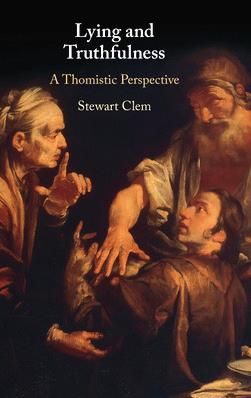
Established Summer of 2022
[ March 7, 2023
Sponsored book event: Lying and Truthfulness: A Thomistic Perspective, with author and Aquinas faculty member Stewart Clem, PhD
March 30, 2023 ]
Sponsored special event:
“The Church We Are: How Hispanics Are Building and Rebuilding U.S. Catholicism,” with Dr. Hosffman Ospino from Boston College
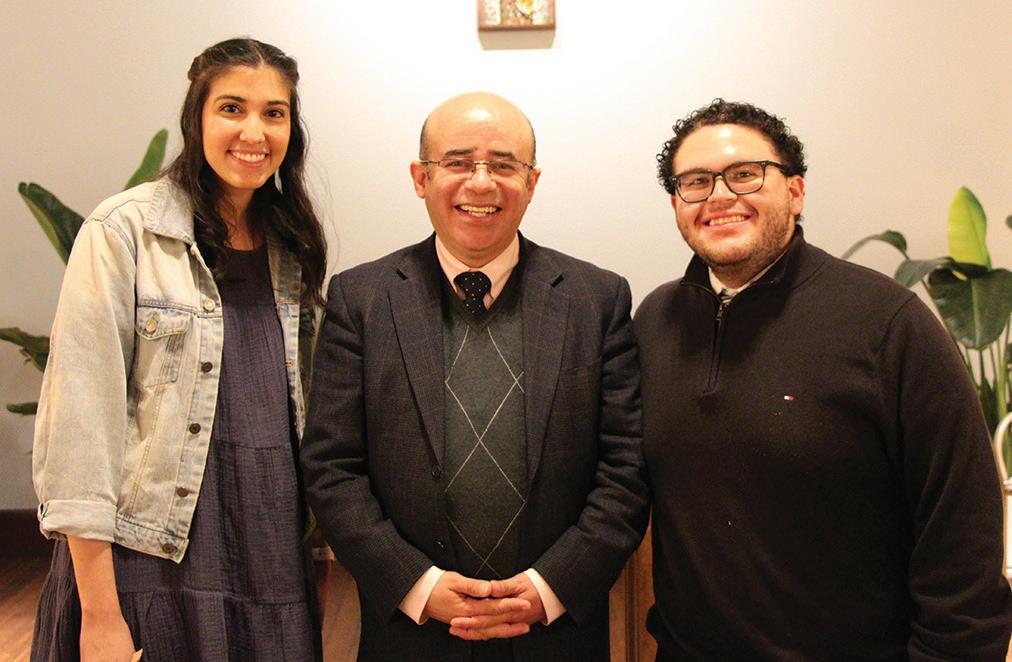
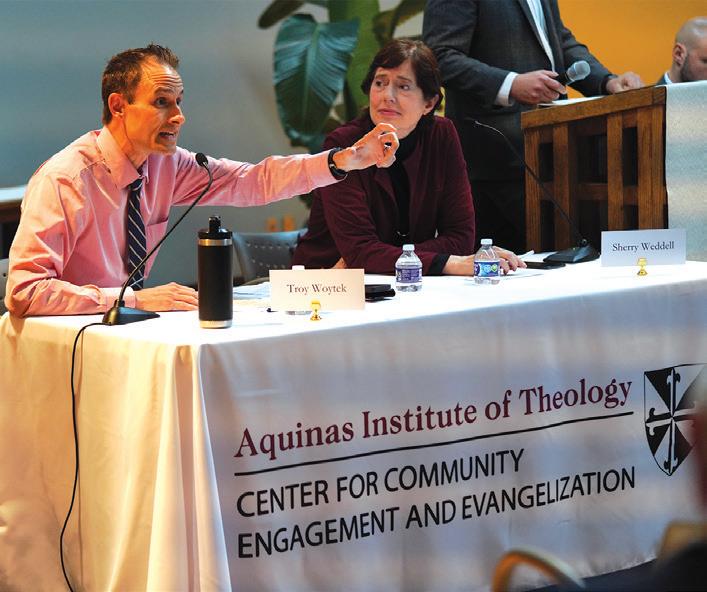
[ April 27, 2023 ]
The Center for Community Engagement and Evangelization Opening Event: “Making Missionary Disciples: A Conversation on the New Evangelization” with:
u Sherry Weddell, co-founder and Executive Director of the Catherine of Siena Institute
u Peter Andrastek, The Evangelical Catholic
u Troy Woytek, Director of Ministry at the Catholic Student Center at Washington University
u Marie Putbrese, Fellowship of Catholic University Students (FOCUS) d
The Center’s first summer season featured classroom workshops:
u Ministry and Mental Well-Being Lynne Lang of Restoration Matters
u Catherine of Siena: Life and Thought Fr. Tom McDermott, OP
u What Is Sex For?
Fr. Charlie Bouchard, OP
u Paul and the Mystical Body of Christ
Fr. Vincent Davila
u In Search of the Happy Death
Fr. Charlie Bouchard, OP
The Center had a brief fall season with three presentations: September 29, 2023 ] “For the Many: The Eucharist as Remedy for Our Polarized Society,” with Fr. John Baldovin, SJ d
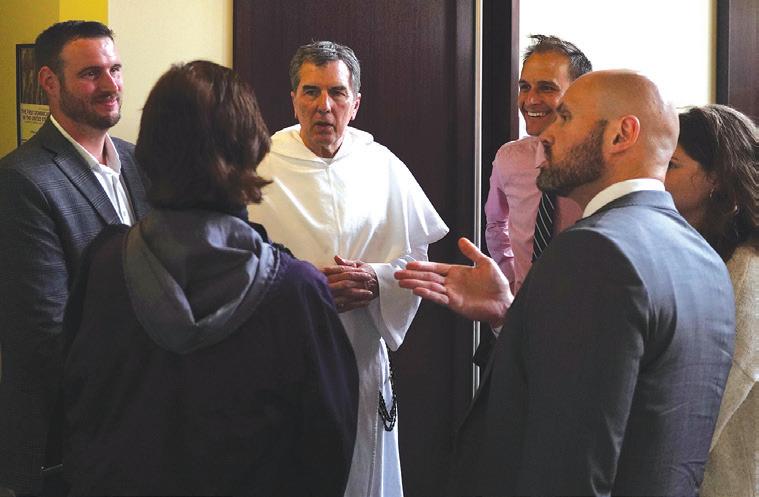
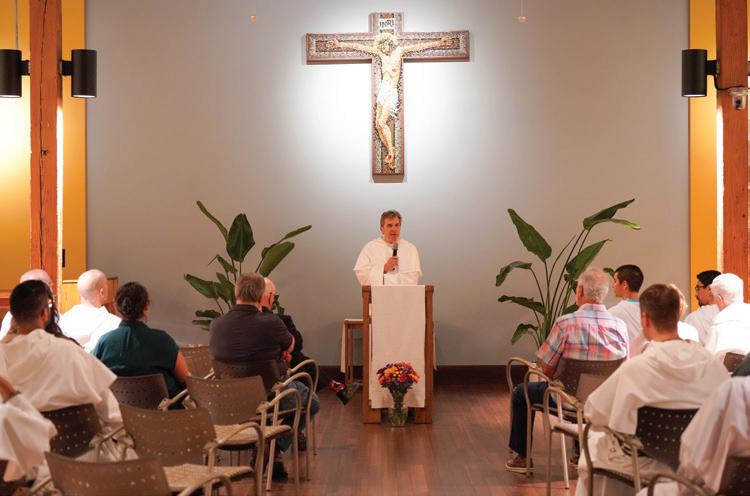
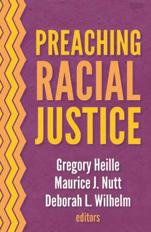
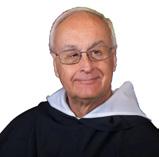
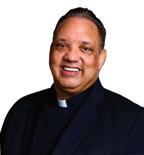
To register, visit: ai.edu/prj

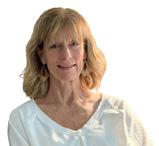
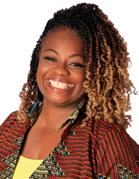
October 9-10, 2023
“How and Why the Church Should Recognize and Respond to Domestic Violence,” with Fr. Chuck Dahm, OP
October 12, 2023 ]
“Preaching with Children: Exploring the Word of God with the Church’s Youngest Members,” with Ann Garrido, DMin
[ March 7, 2024
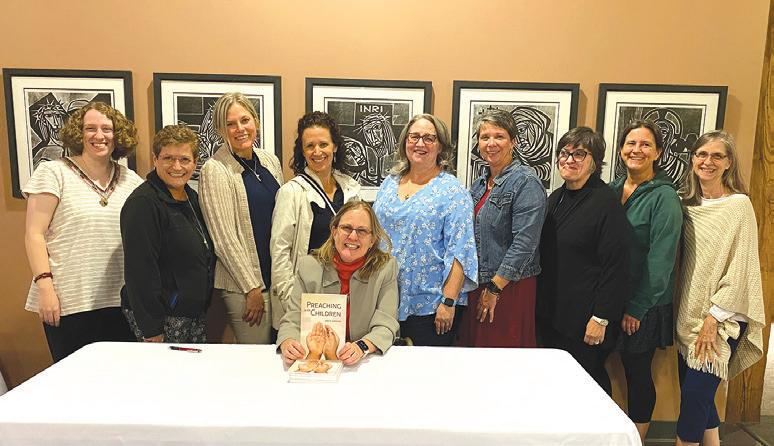
The Center had its biggest event when it co-sponsored the Preaching Racial Justice panel event with the New Frontiers in Preaching program. The event featured editors of the book of the same name Fr. Gregory Heille, OP, DMin; Fr. Maurice Nutt, CSsR, DMin; Deborah Wilhelm, DMin on the panel, along with Rev. Dietra Wise Baker, DMin. Fr. Manuel Williams, CR, moderated the panel and the event featured F. Javier Orozco as a respondent.
Lecture Series –
Thomas Aquinas: Then and Now
The Center kept evolving to meet the needs of those to whom it ministers, featuring more multi-part thematic presentations. People could choose to attend any or all of the independent lectures during these luncheon presentations. The first of these was the Thomas Aquinas: Then and Now series, which featured:
December 1, 2023 ]
“Are We Made for Happiness? St. Thomas Aquinas, Happiness, and the Moral Life,” with Fr. Charlie Bouchard, OP
February 2, 2024
“Why Did God Become Human? A Thomistic Perspective,” with Fr. Vincent Davila, OP
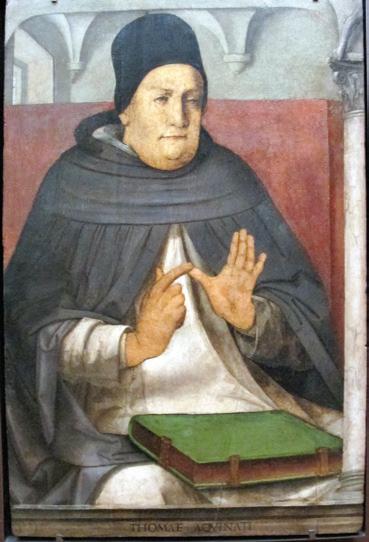
March 8, 2024
“Why Virtue? Reframing the Christian Life with Thomas Aquinas,” with Fr. Michael Mascari, OP
April 5, 2024
“Thomas in His Day: How the 13th Century Produced a Philosophical Prodigy,” with Brian Matz, PhD
May 3, 2024
“Why Truth Still Matters: Thomistic Thought and the Importance of Honesty,” with Stewart Clem, PhD
Lecture Series –
Are the Windows Still Open?
Revisiting the Second Vatican Council
60 Years Later ]
This spring lecture series featured:
March 11, 2024
“We Go to God Together: The Synod’s Revivial of Vatican II’s Constitution on the Church,” with Edward Hahnenberg, PhD (John Carroll University)
March 25, 2024
“‘The Joys and Hopes’ of Vatican II and Their Resonances Today,” with Fr. Maxime Allard, OP
April 8, 2024
“Dogmatic Constitution on Divine Revelation: ‘Alive and Well’ in Scripture and Tradition and the Sensus Fidei,” with Fr. Tom Esselman, CM
April 22, 2024
“Liturgy and Vatican II: What We Have Learned in the Last 60 Years,” with Aquinas President Fr. Mark Wedig, OP
The Center of Community Engagement and Evangelization’s second summer season is focused more on practical theology and experiencing God in a multitude of cultural ways. You won’t want to miss another Center event!
To find out more about the Center or any of its offerings, visit ai.edu/ccee

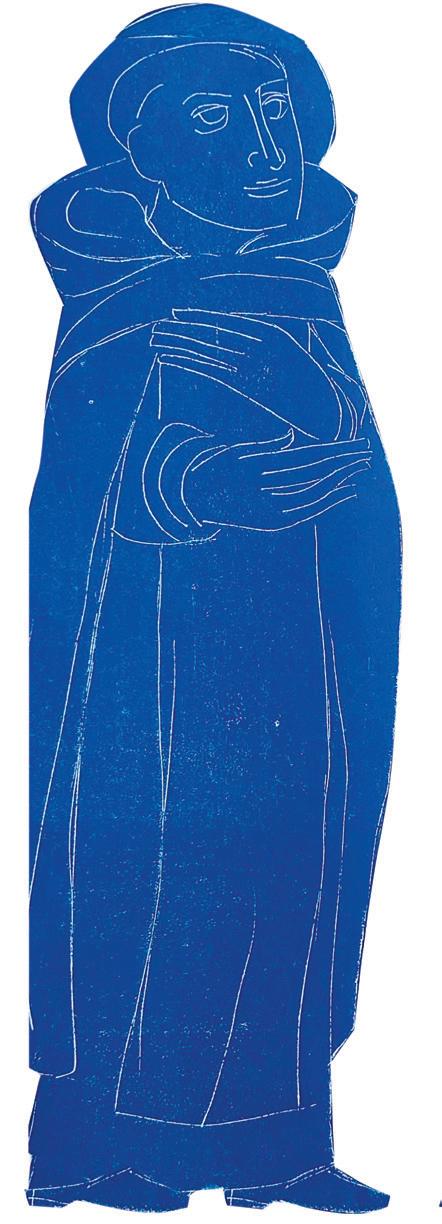
Y ou A re I nvited T o Rediscovering the Catholic Imagination: Thinking Theologically with Art and Nature
Join us as we explore various cultural avenues and experiences in our St. Louis area and discern the spiritual nature of the world which surrounds us. Together we will be looking at art, architecture and nature and seeing how we might appreciate them with the eyes of faith.
BEGINS JULY 10
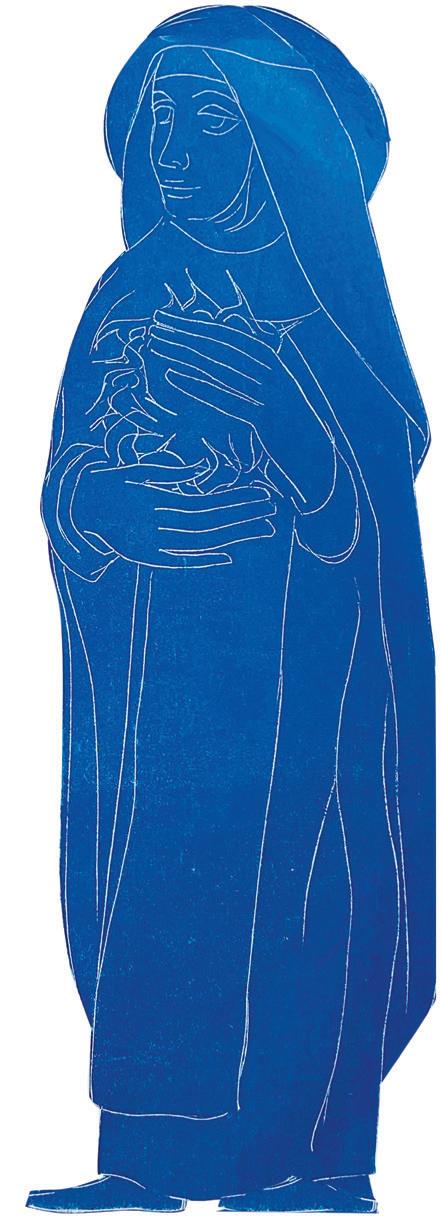
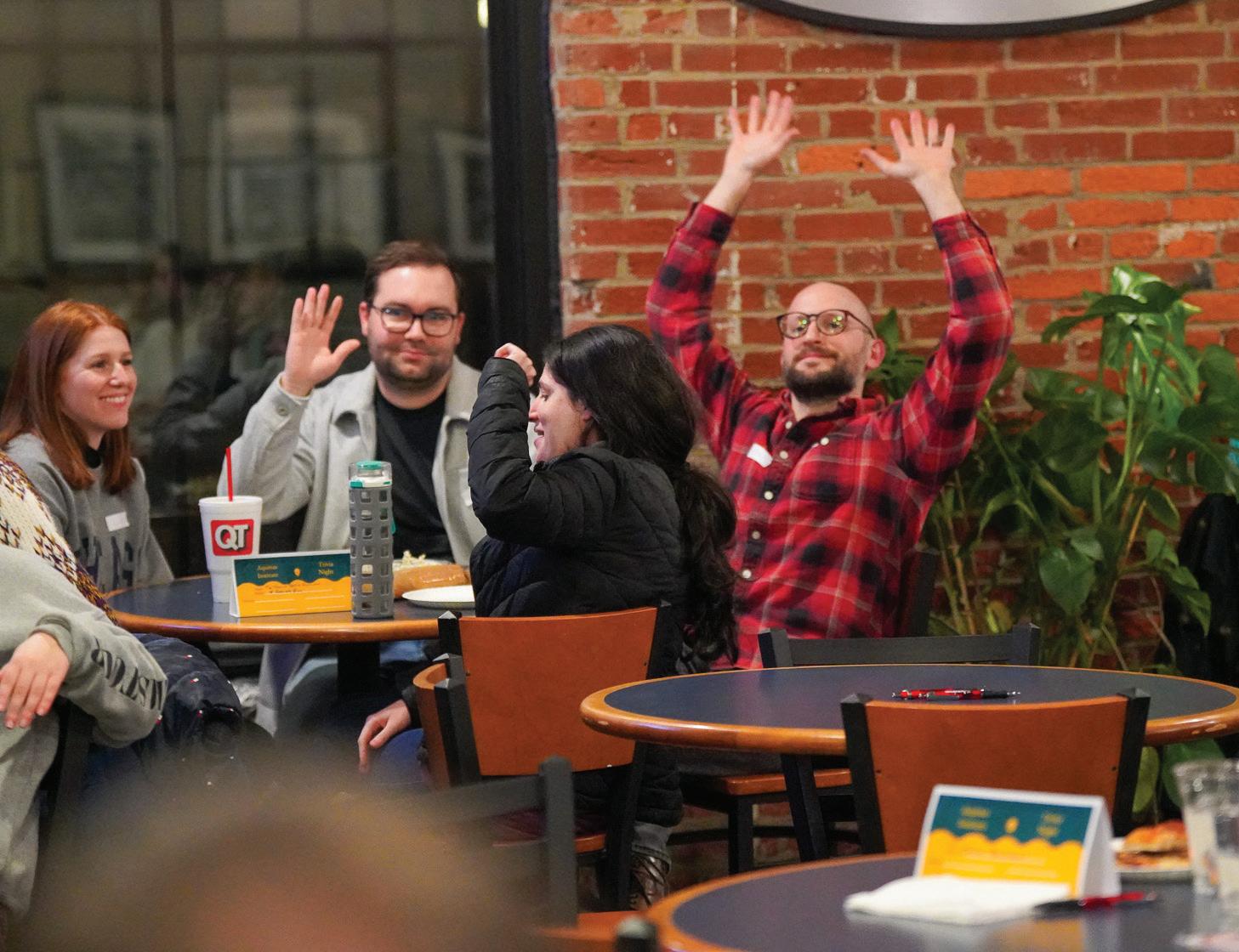

Mary Fey Barles: Mary is a current CGS Catechist from Wichita, Kansas. She has completed all levels of CGS formation, Infant/Toddler, I, II, and III. Mary is currently the Assistant Principal at St. Francis of Assisi Catholic School in the Diocese of Wichita.
Danielle Cribbs: Danielle is a current CGS Catechist from Shelocta, Pennsylvania. She has been involved with CGS since 2012 and is a catechist for levels I, II, and III. Danielle currently works as the Director of Parish Life & Ministry and Safe Environments Coordinator at Holy Family Parish in the Diocese of Greensburg.
Kurt Eyrich: Kurt is a current CGS Catechist from Augusta, Georgia. He has completed levels I, II, and III of CGS formation and has enjoyed working in atria for the past 15 years. Kurt currently is the Director of Religious Education at St. Joseph Catholic Church in Augusta.
Elizabeth Velleman: Elizabeth is a current CGS Catechist from Columbia, Missouri. She has completed levels I, II and III of CGS formation. Elizabeth hopes to teach high school theology after she finishes her MAPS-CGS degree.
Pamela Cooper: Pamela is a current CGS Catechist from Roanoke, Texas. She has completed levels I, II, and III of CGS formation. Pamela hopes to use her MAPS-CGS degree to continue to grow the atrium in her parish by offering CGS formation courses.
Brianne Linder: Brianne is a current CGS Catechist from Melbourne, Florida. She has completed all three levels of CGS formation. Brianne currently owns and operates a photography company. She hopes to be a CGS formation leader after completing her MAPS-CGS degree.
Karen Webb: Karen is a current CGS Catechist from Carmel, Indiana. She has been involved with CGS since 2015 and has completed levels I, II, and III of CGS formation. Karen worked with the Dominican Sisters of Saint Cecilia to create an atrium at her parish and school, Our Lady of Mount Carmel. After completing her MAPS-CGS degree, Karen hopes to participate in leadership in CGS USA, and continue to open atria in the Midwest.
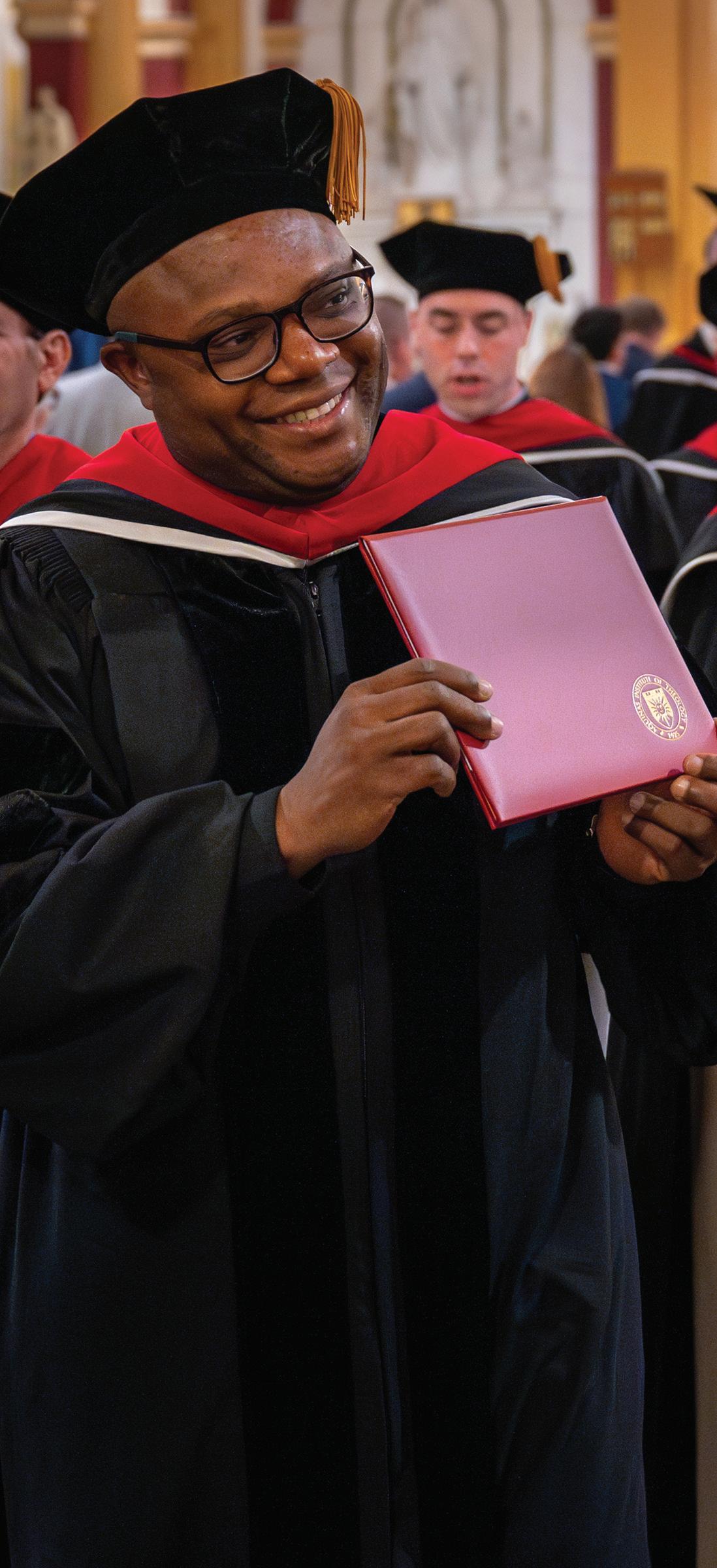
baccalaureate and commencement may 10, 2024
st. pius v catholic church
Lcommencement speaker: Rafael Luciani, PhD, STD
Associate Professor of the Practice
Professor Extraordinarius
Clough School of Theology and Ministry at Boston College
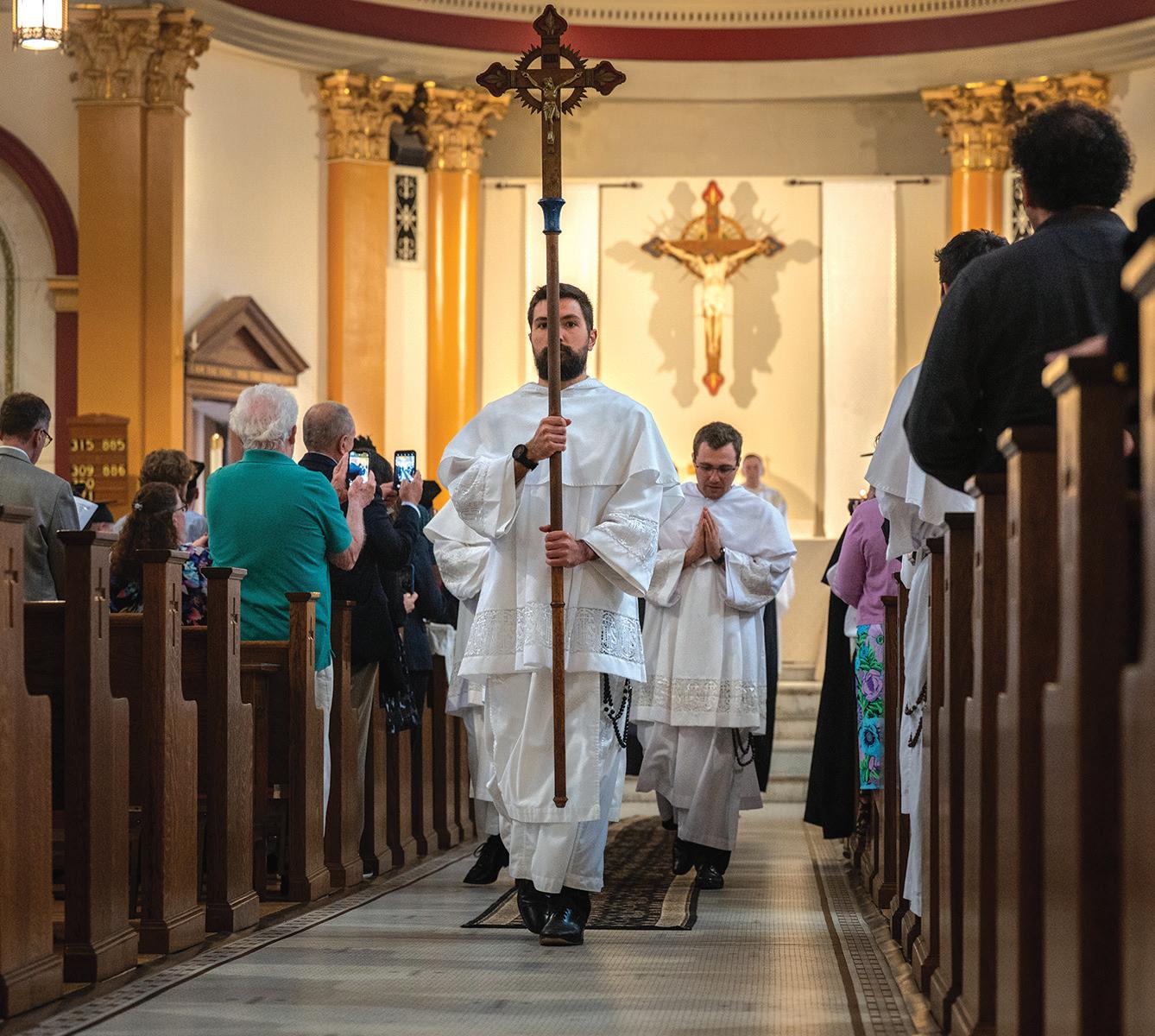
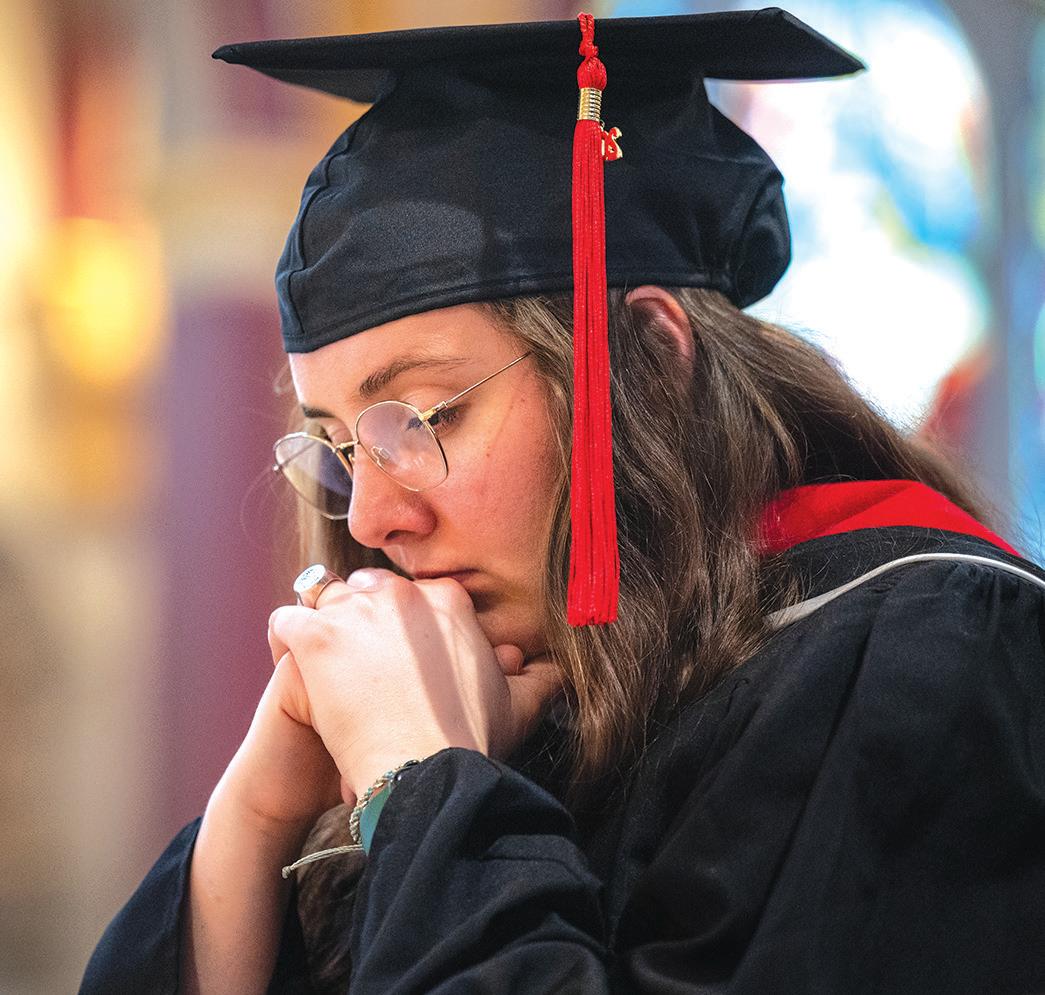
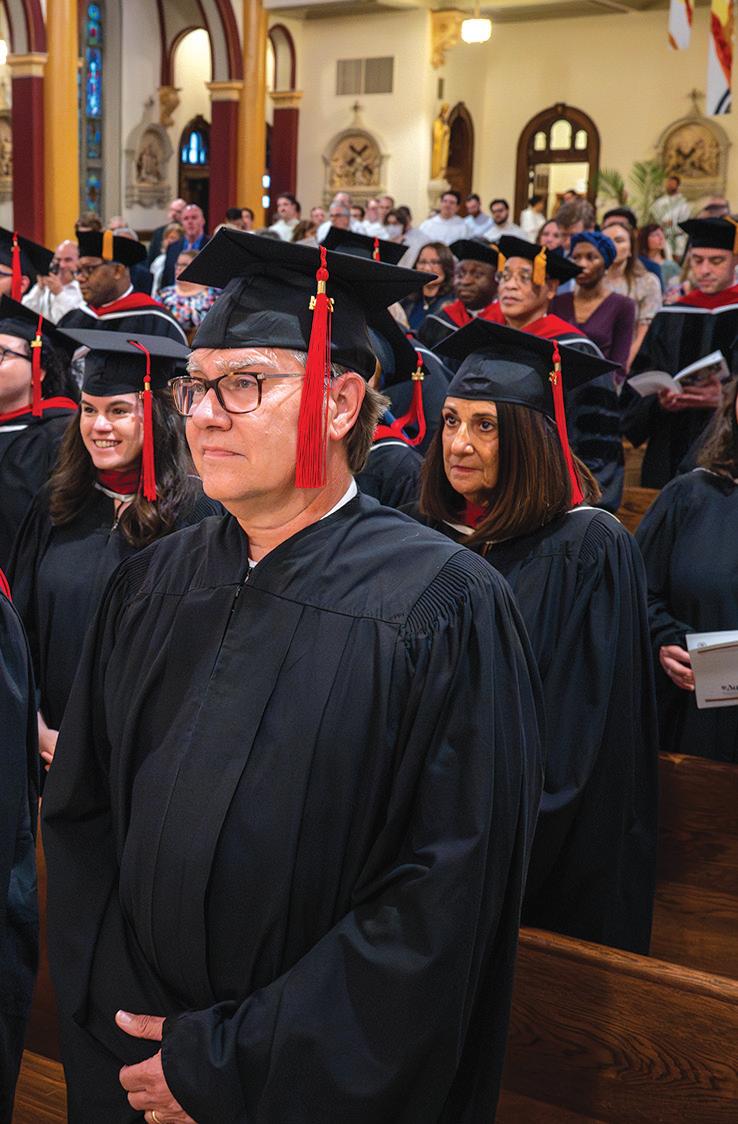
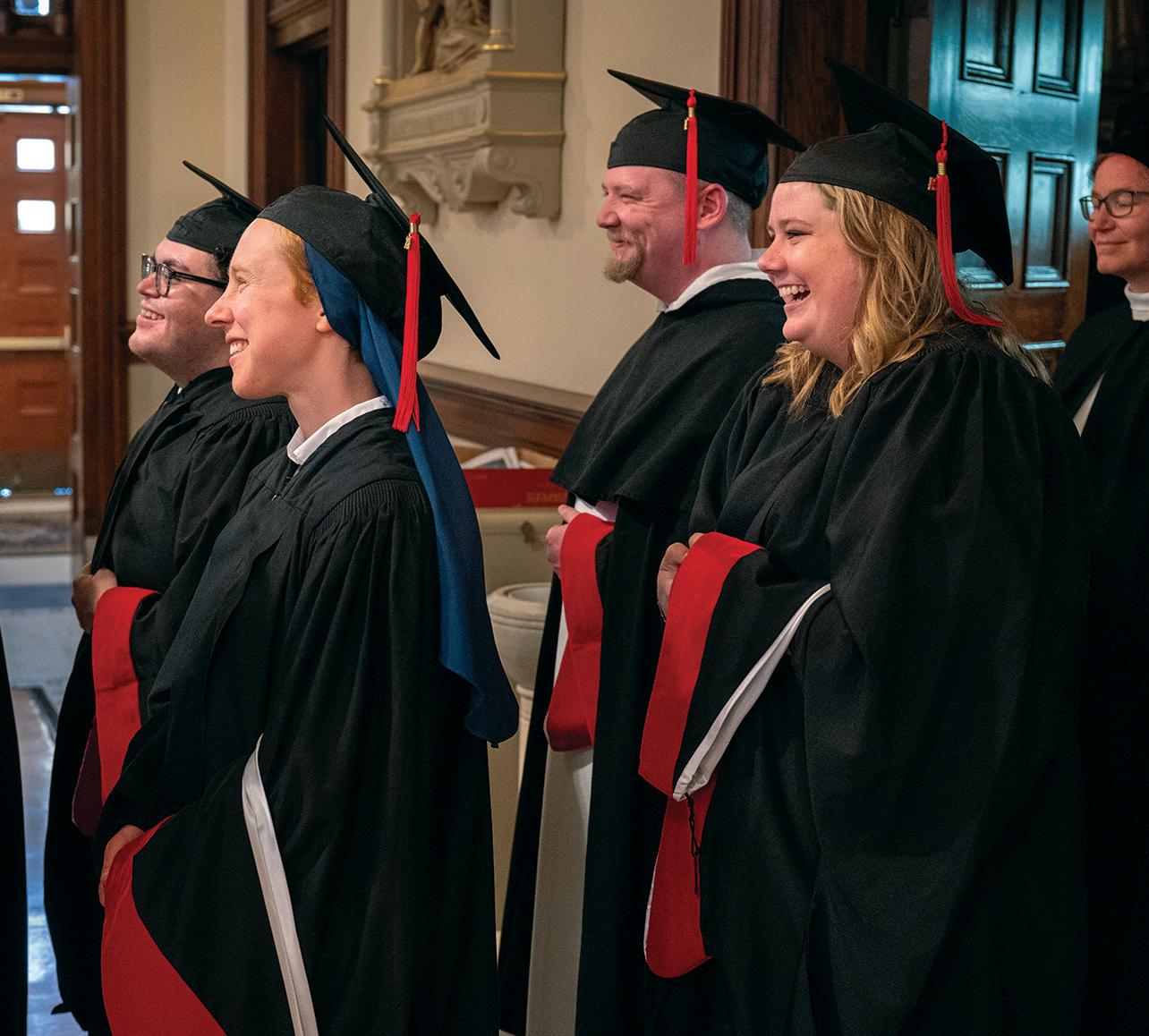
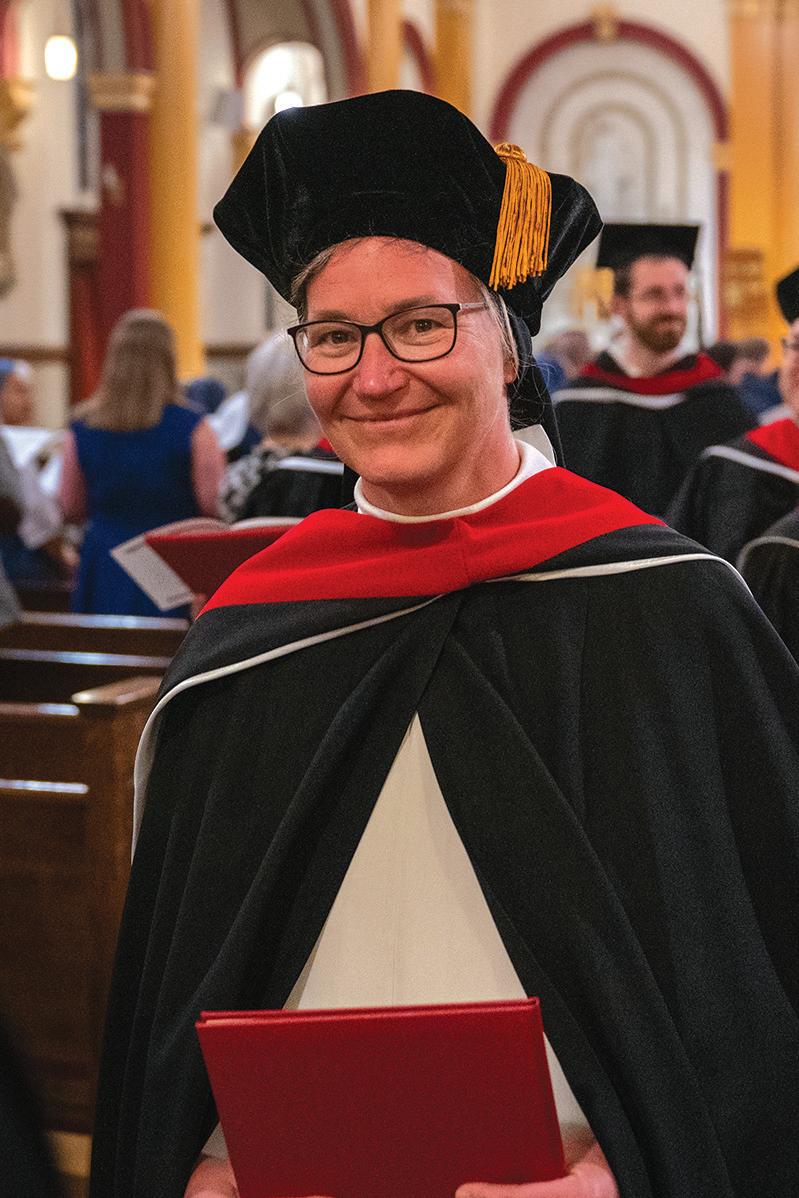
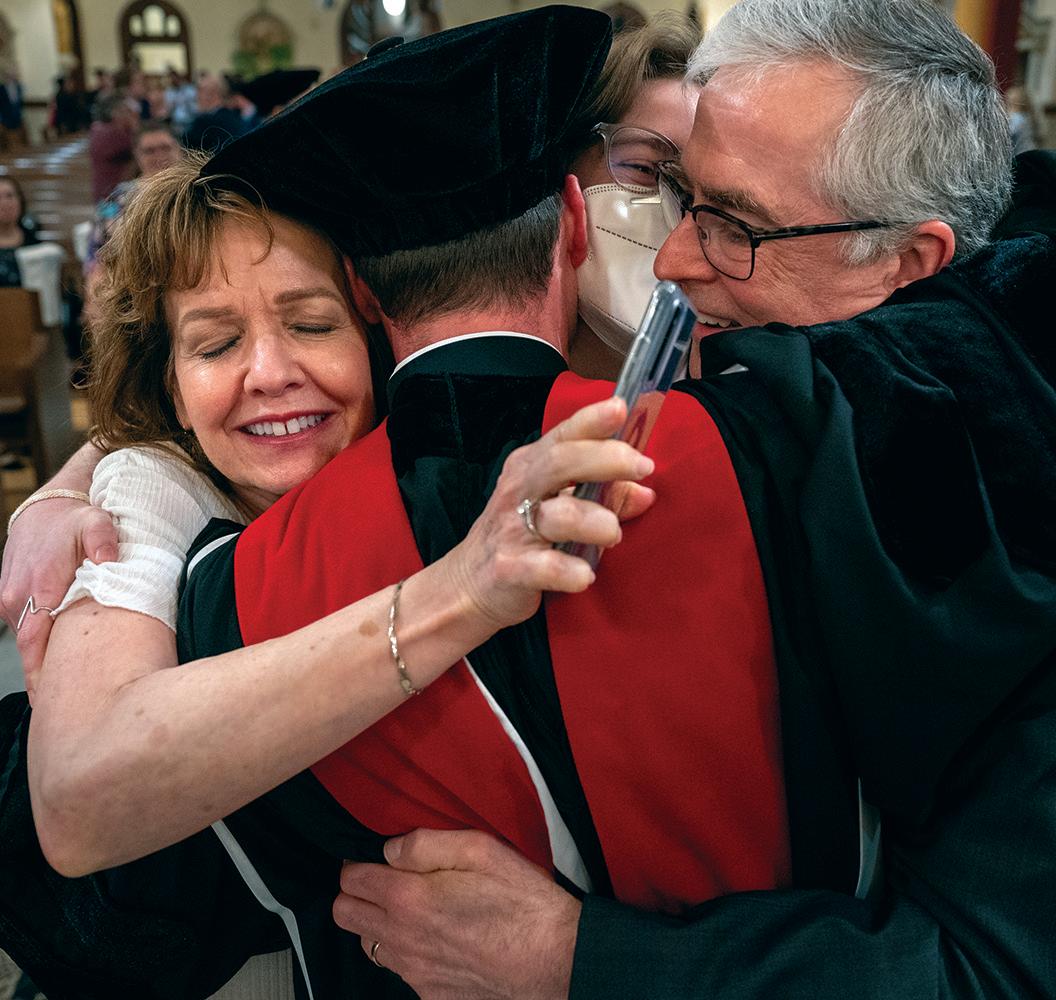

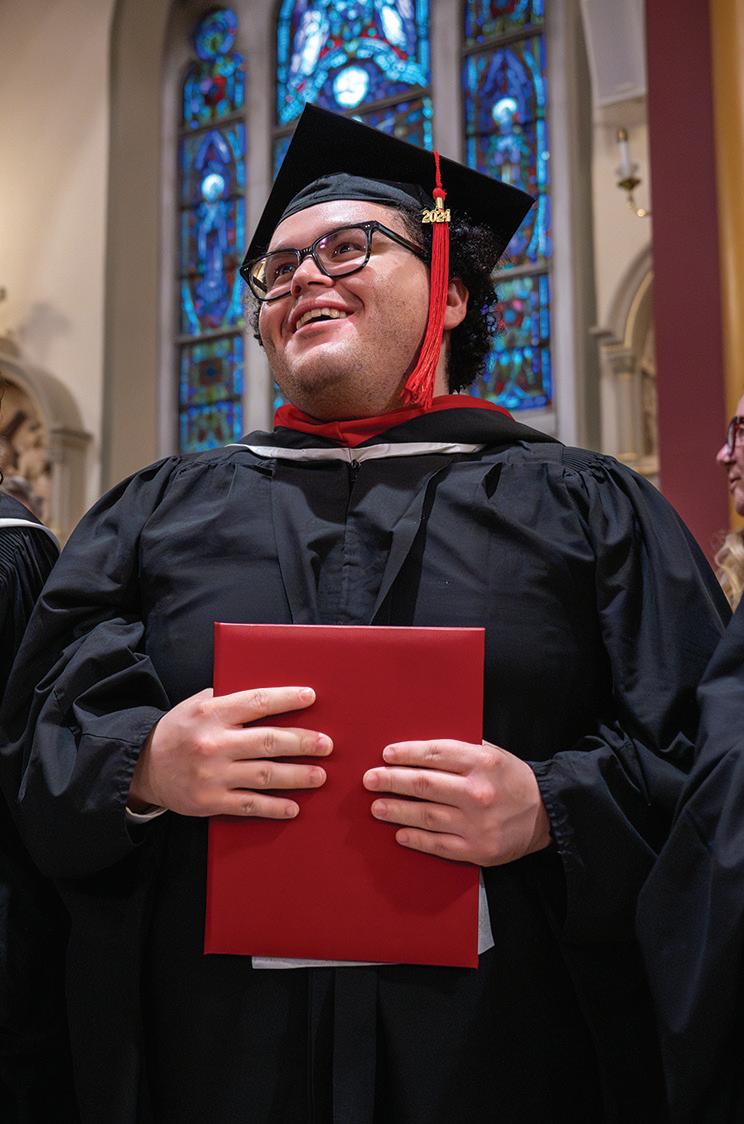
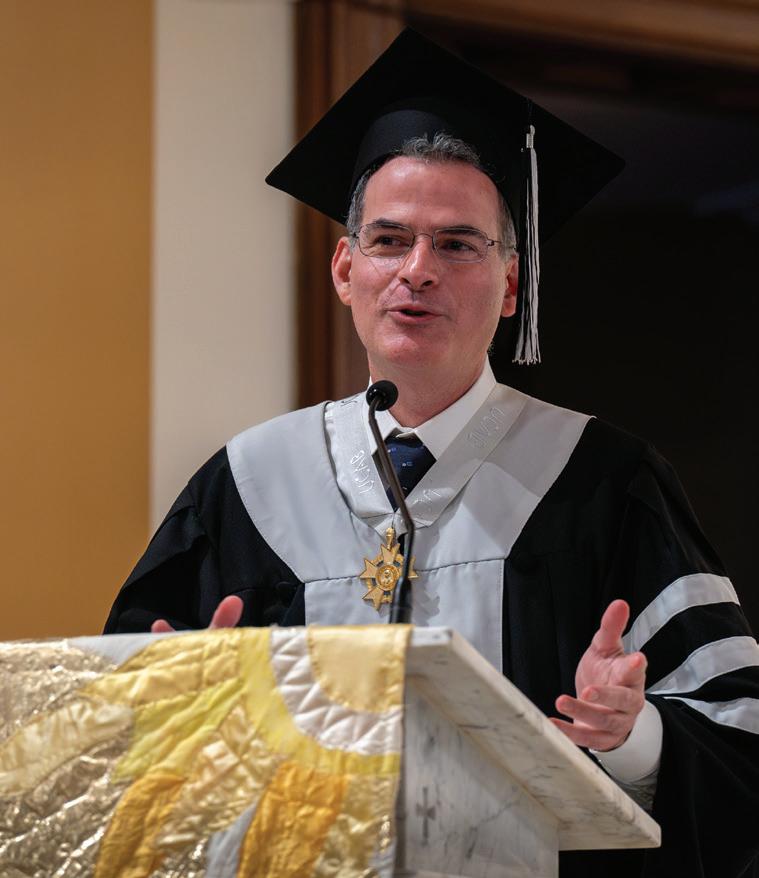
Commencement
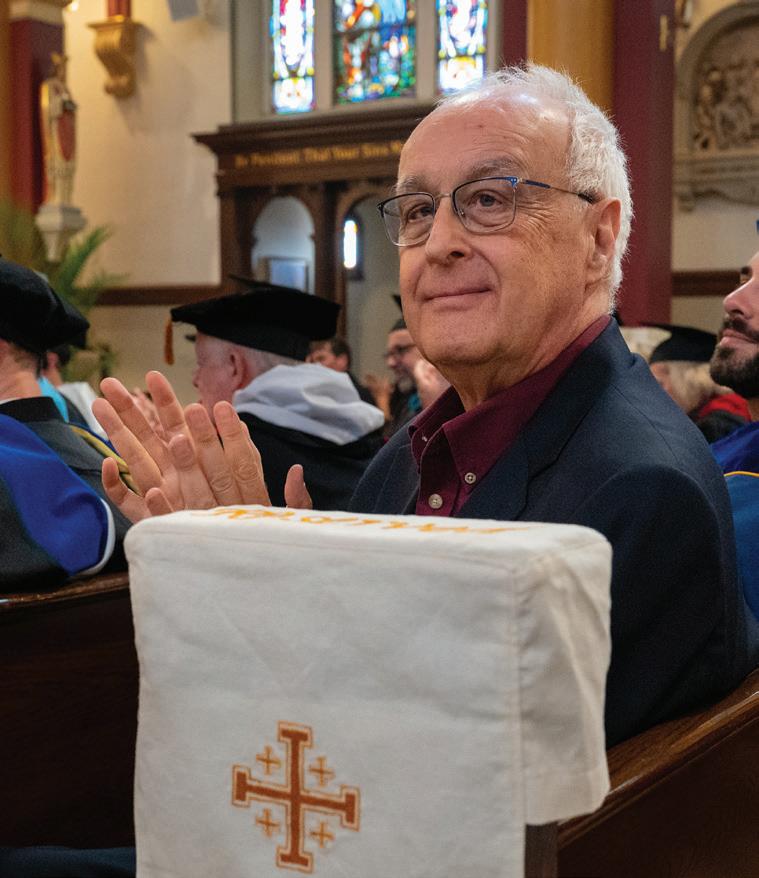

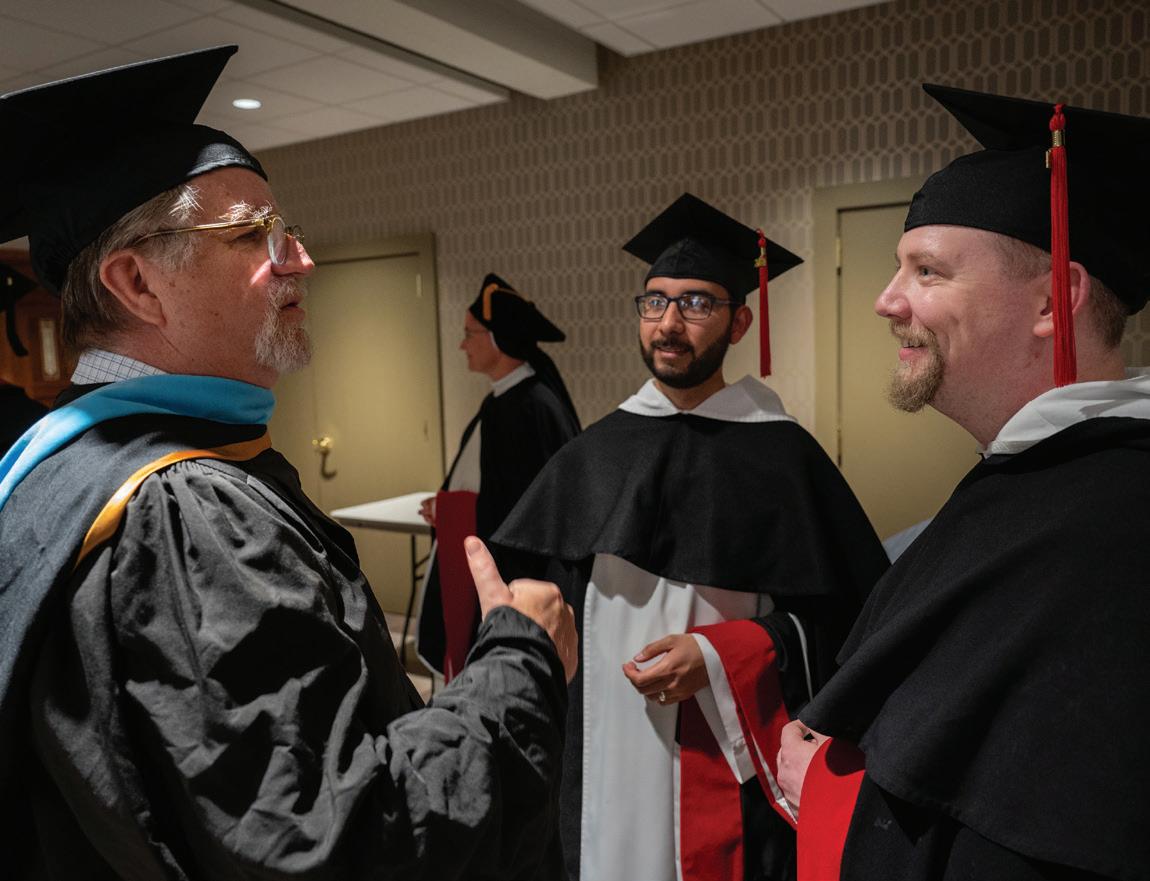
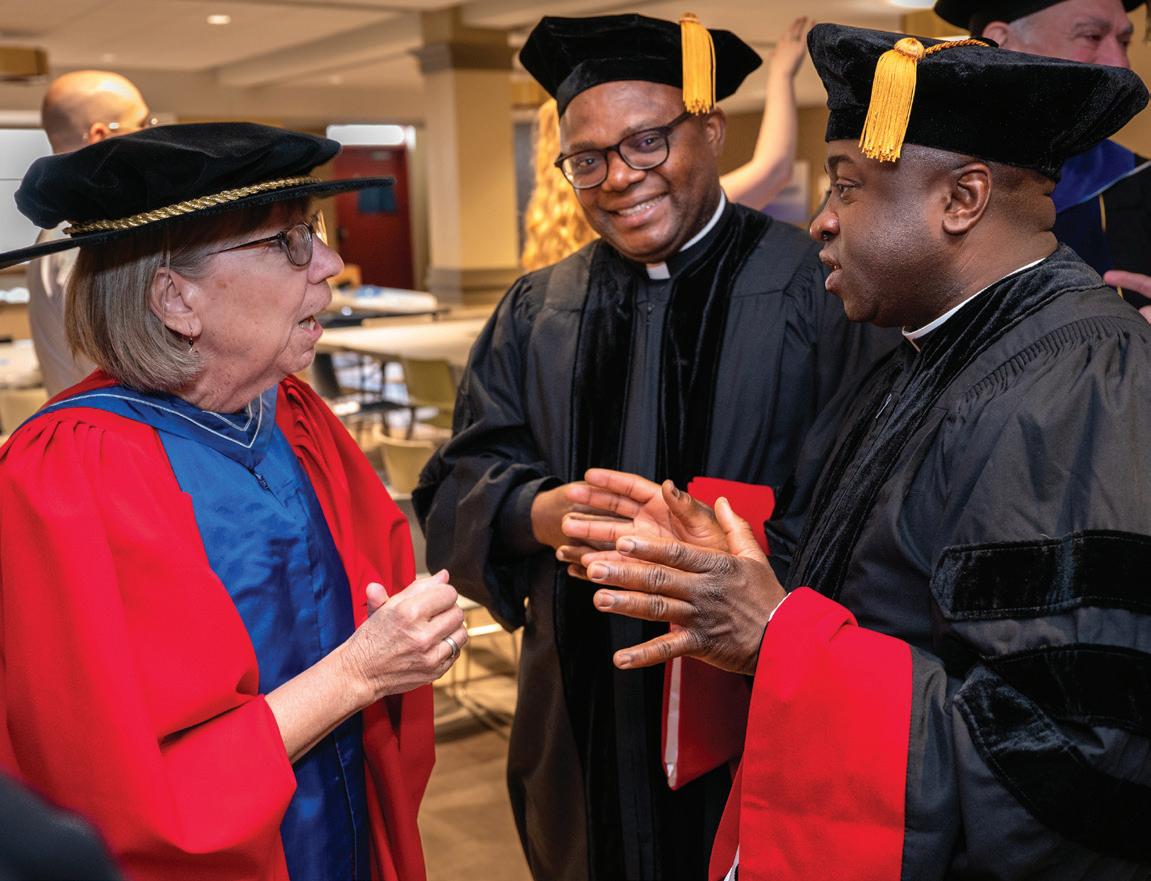

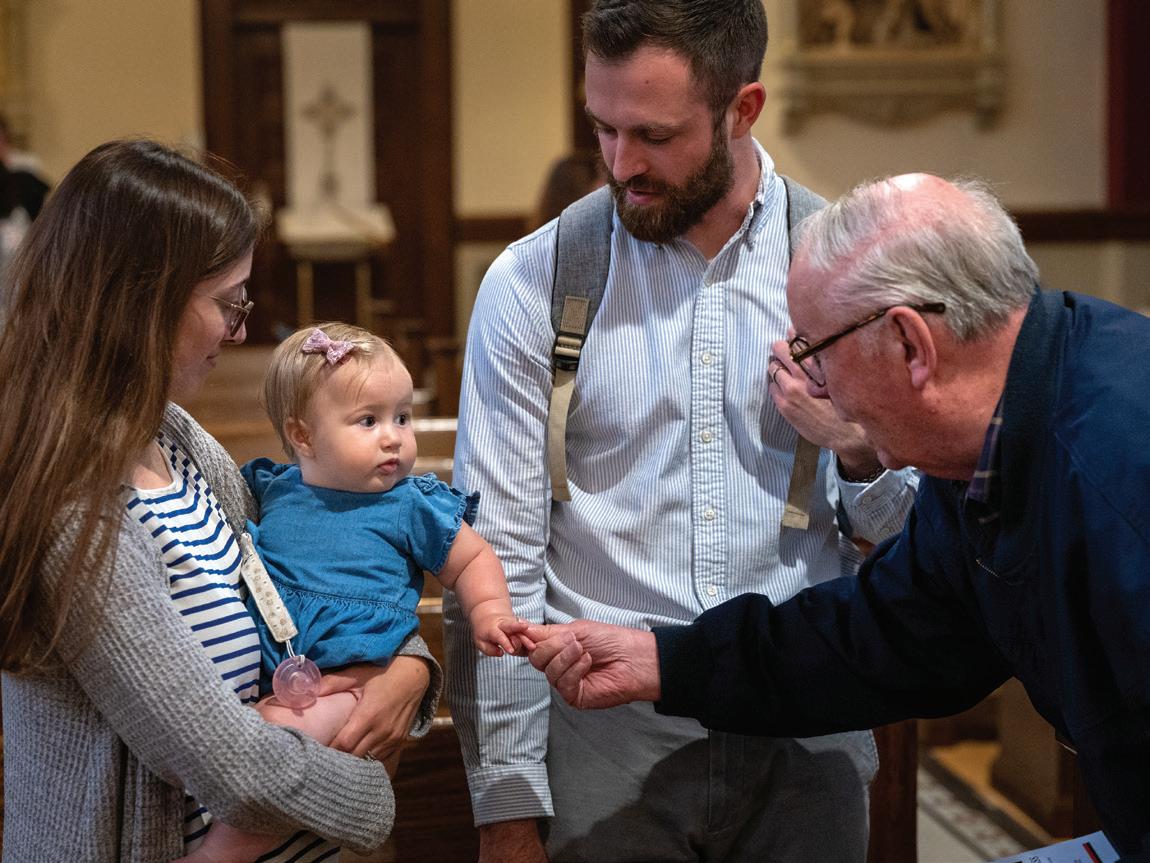
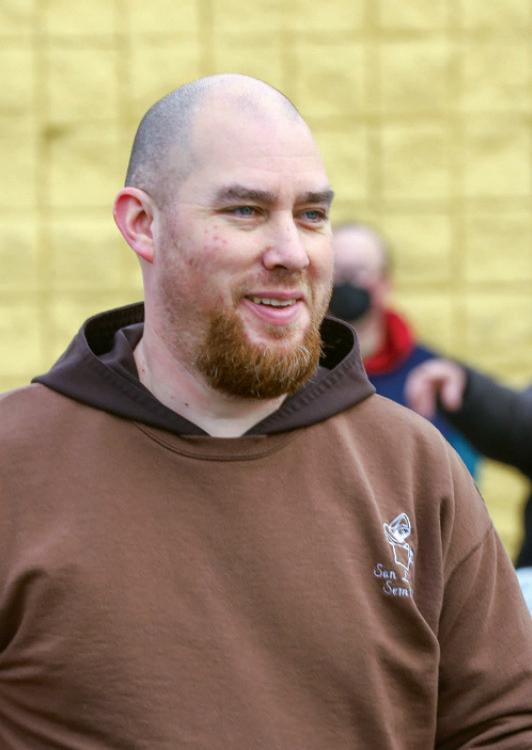
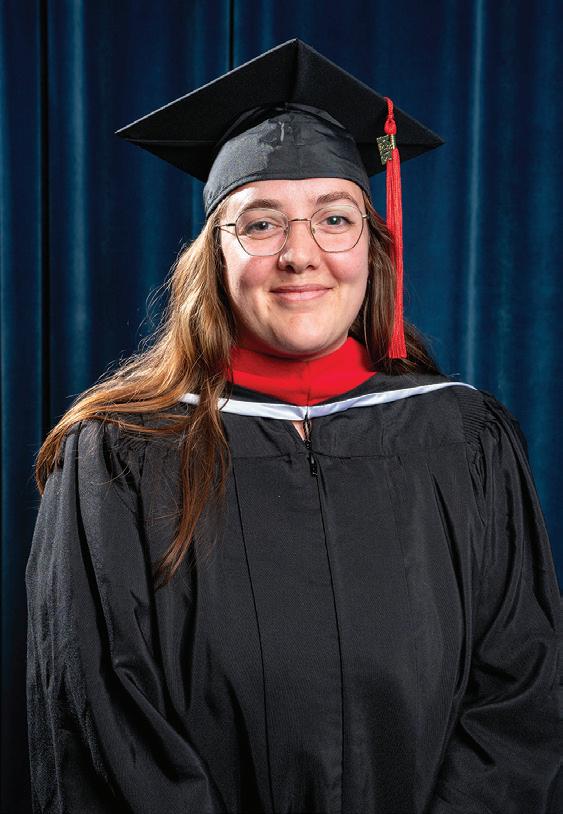
a
How have you changed by studying at Aquinas?
Life is like a diamond, every stage gives a new facet and adds to the brilliance of it. Studying at Aquinas has given my life an extra facet to sparkle more.
Fr. Igor De Bliquy, OFM Cap. spiritual direction
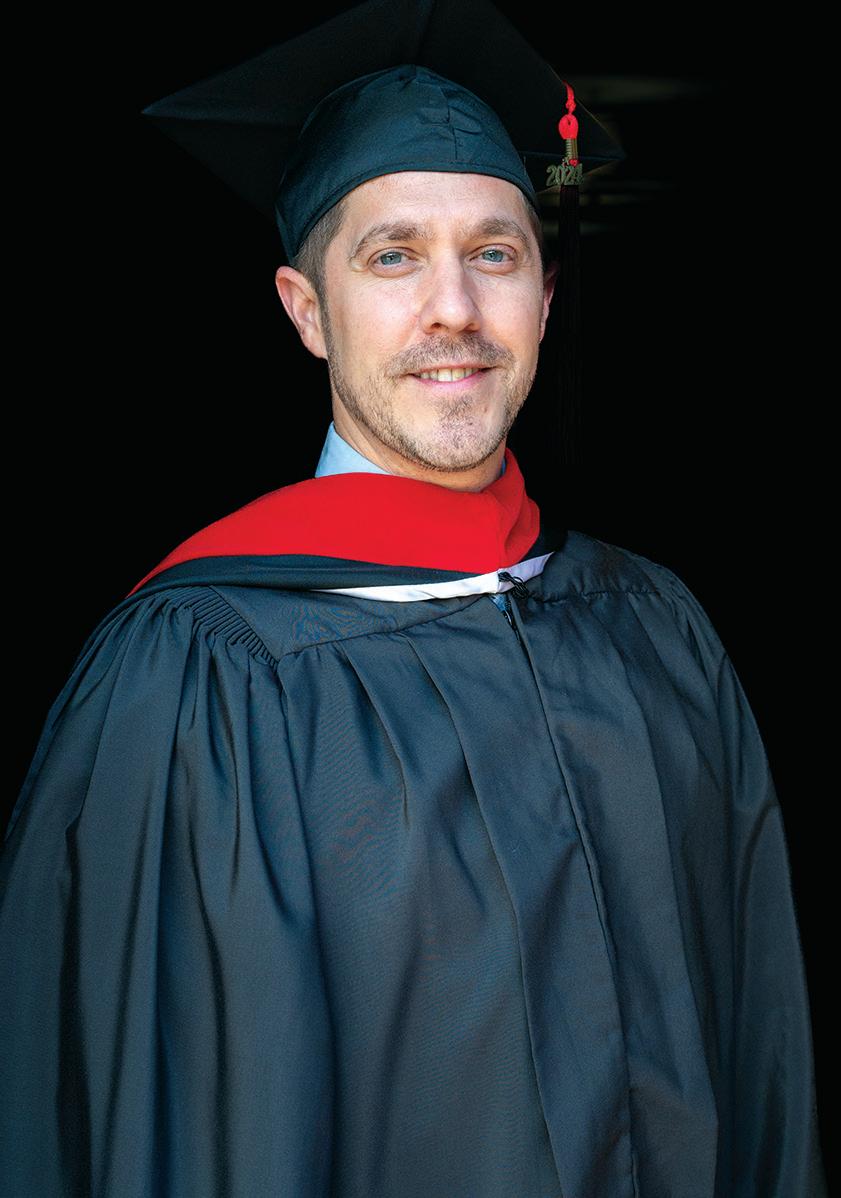
graduate reflection a
How have you changed by studying at Aquinas?
Aside from some serious conditioning when it comes to reading speed and quantity, my perception of the world through faith has changed over the past couple years. Things no longer sit at the surface level intellectually or spiritually. Each word of the liturgy has newfound significance adding more weight to my convictions and faith. God has opened my eyes and ears in ways I had never seen or heard prior to embarking on this journey.
Aniela Chertavian Atchison master of arts in practical theologyhealth care mission
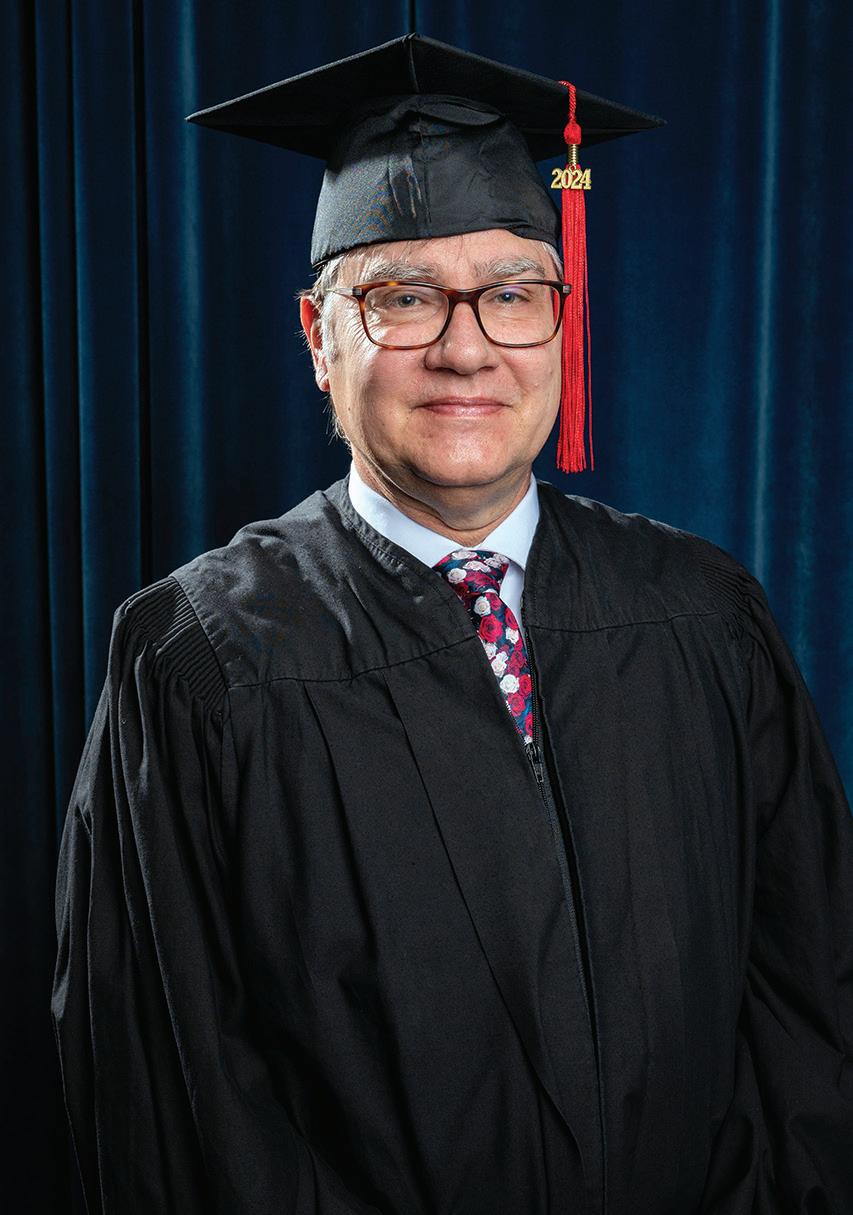
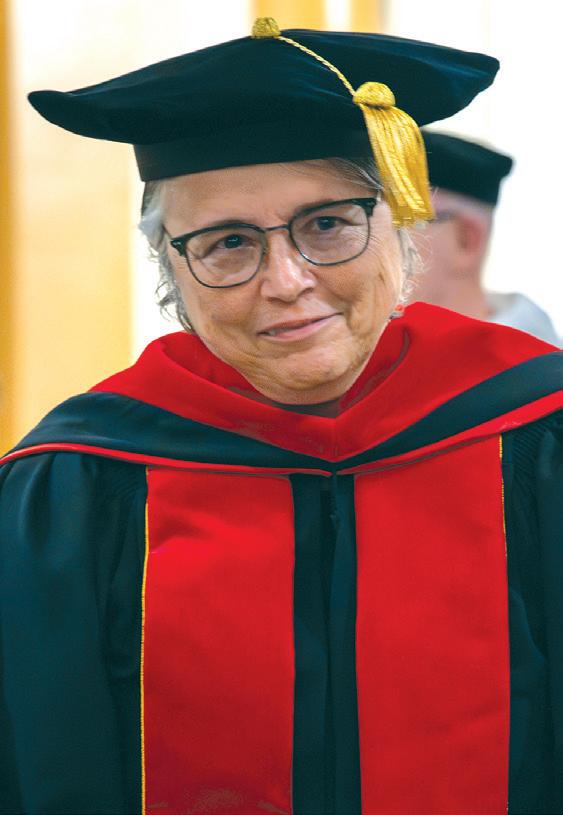
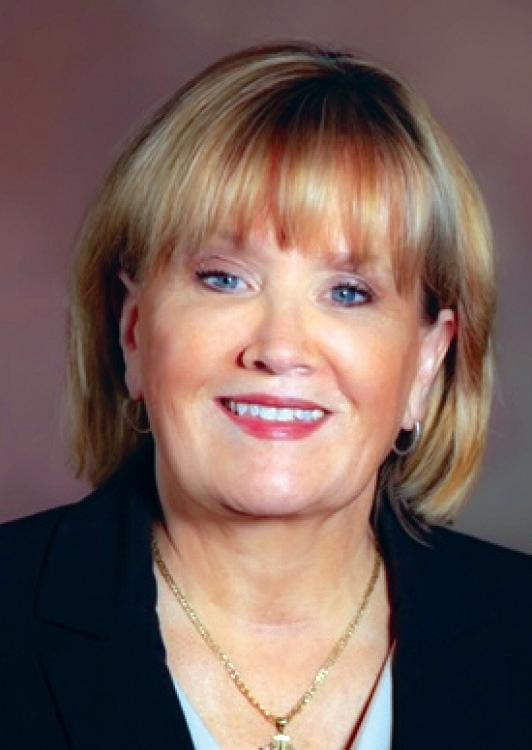
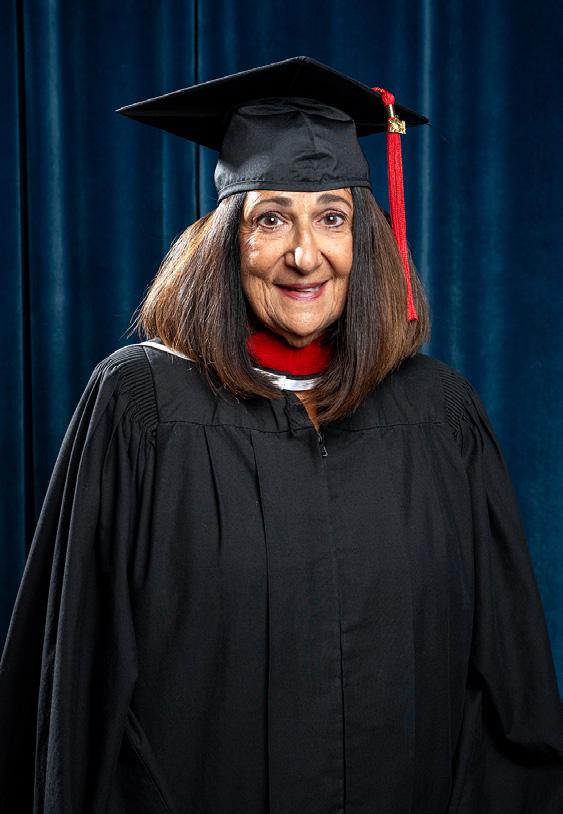
reflection a
Each course opened a world of insight for me through the students I met and their experiences, the faculty and the efforts they put into creating courses that were challenging and inspiring, as well as the assignments which always revealed much more than I expected. Who would have thought a fourth-century theologian could be so relevant and thought provoking?! I have written business proposals and plans, medical nursing research papers, but there is nothing more challenging than writing a theological paper. I will carry in my heart all that I have learned, the times I thought I wasn’t meant to be in this program, yet found encouragement to continue in so many places. I am exceedingly grateful for this time at Aquinas and for all the gifts it has given to me.
Mary Elizabeth Kingston master of arts in practical theology –health care mission
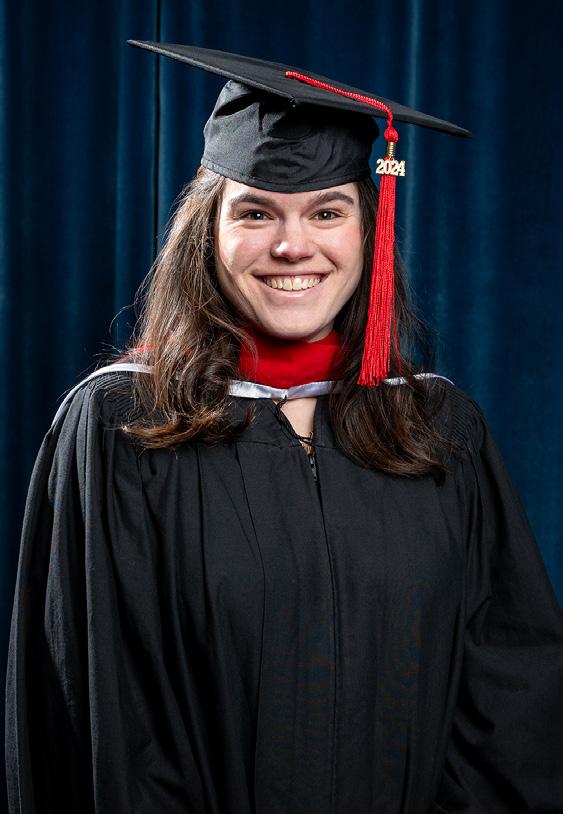
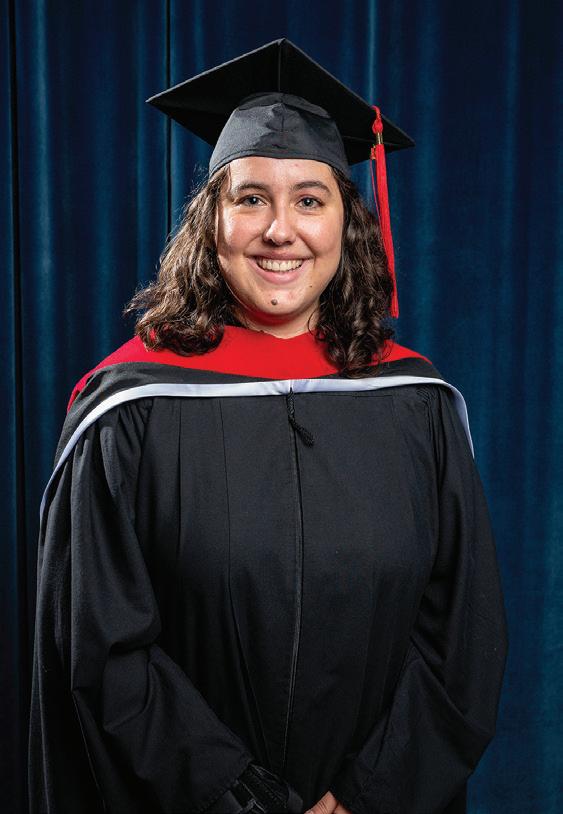
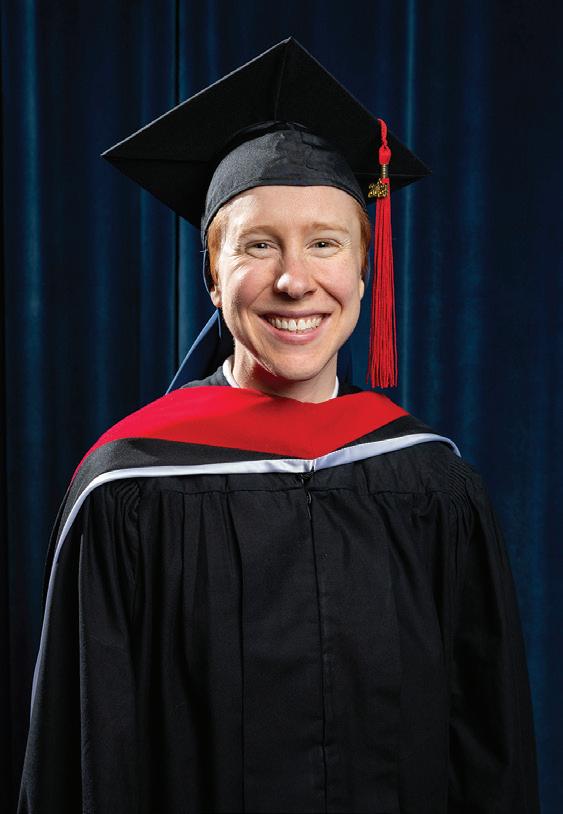
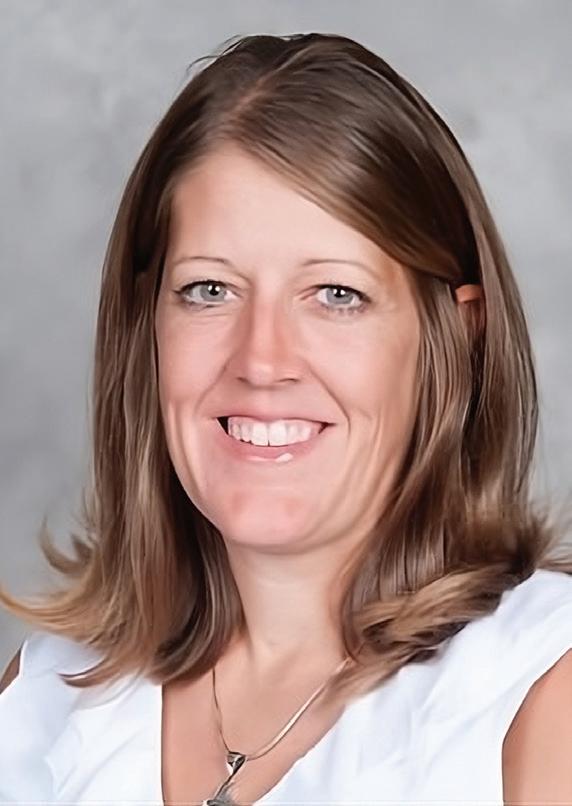
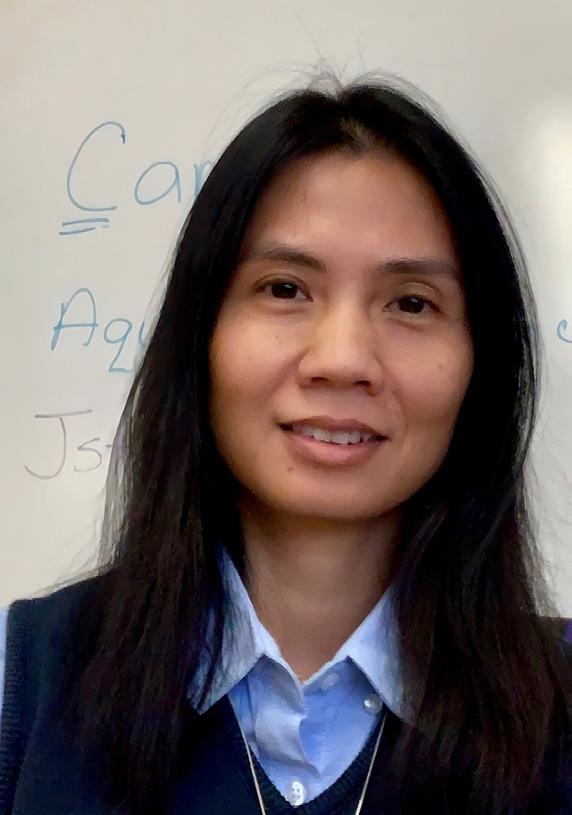
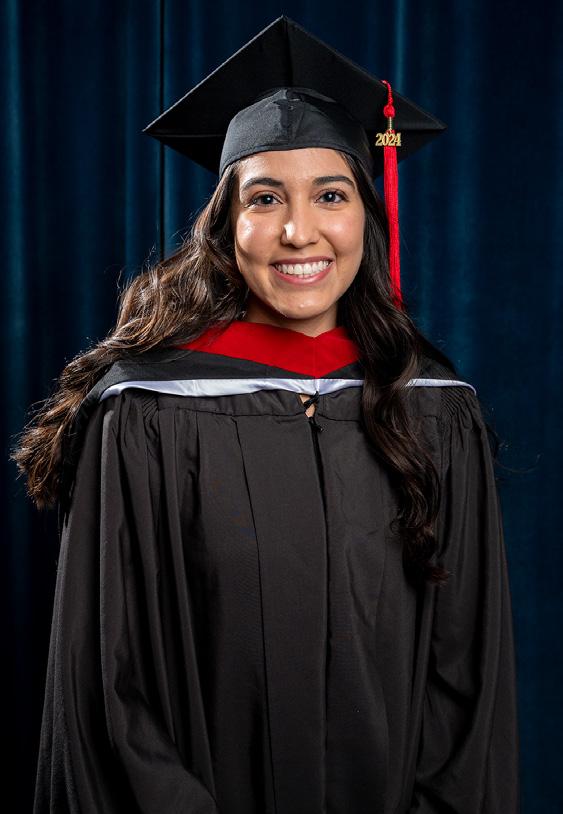
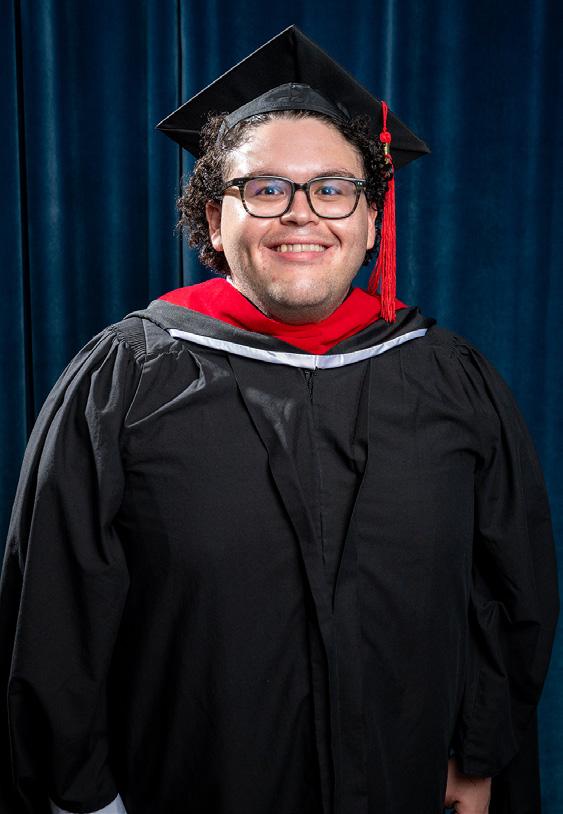
graduate reflection a
Favorite Memory?
I loved engaging in theological conversations with my classmates inside and outside the classroom and integrating our studies with evangelization and mission. I frequently left Aquinas with more to think about, reflect on, and pray with.
Future Plans?
I hope to profess my perpetual vows as a Daughter of St. Paul in 2026!
Sr. Amanda Detry, FSP master of arts in theology
graduate reflection a
Favorite memory?
The moments of community throughout my three years here. Whether it was playing wiffleball with Dominicans and other classmates, having fun get-togethers at an STL brewery, or praying together in Mass and adoration, these moments of fun and bonding were some of the greatest highlights of my time in St. Louis. The people here made each day just a little bit better, and I’m thankful for the long-lasting friendships I hope to keep for my long-term future.
Emmanuel (Manny) Diaz
master of divinity
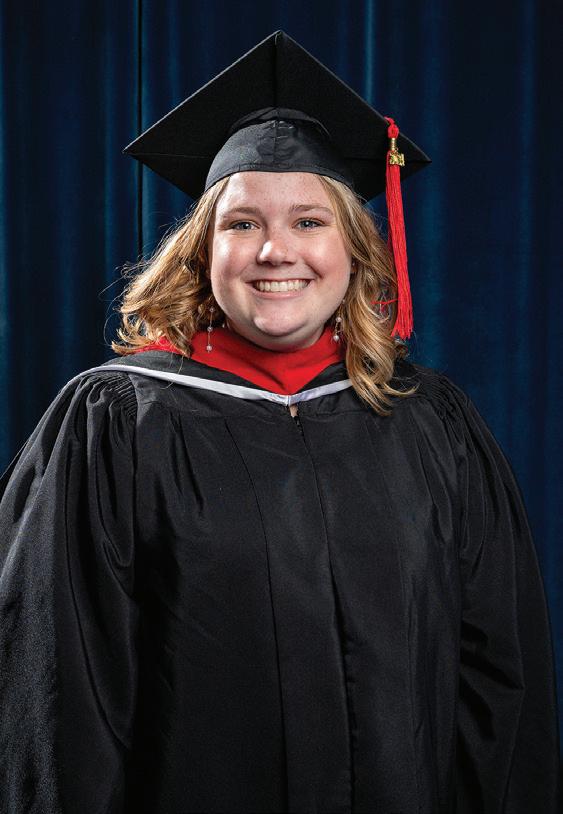
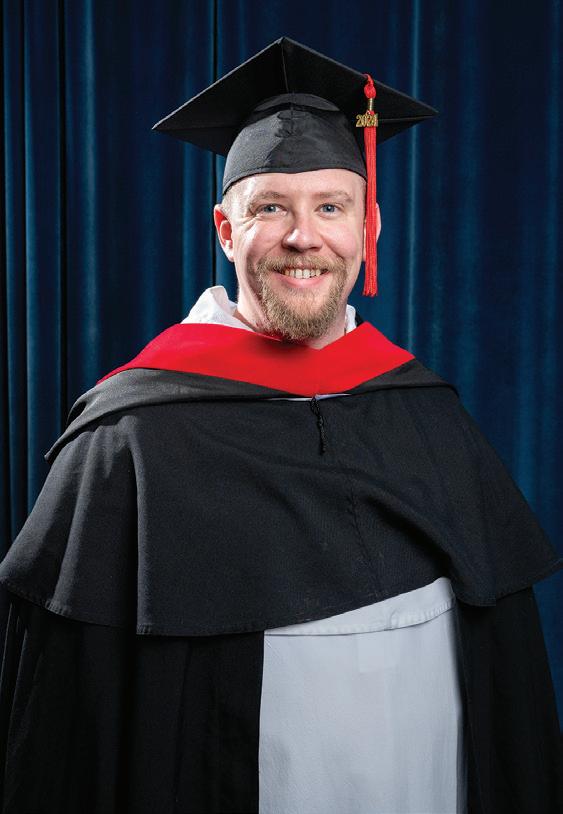
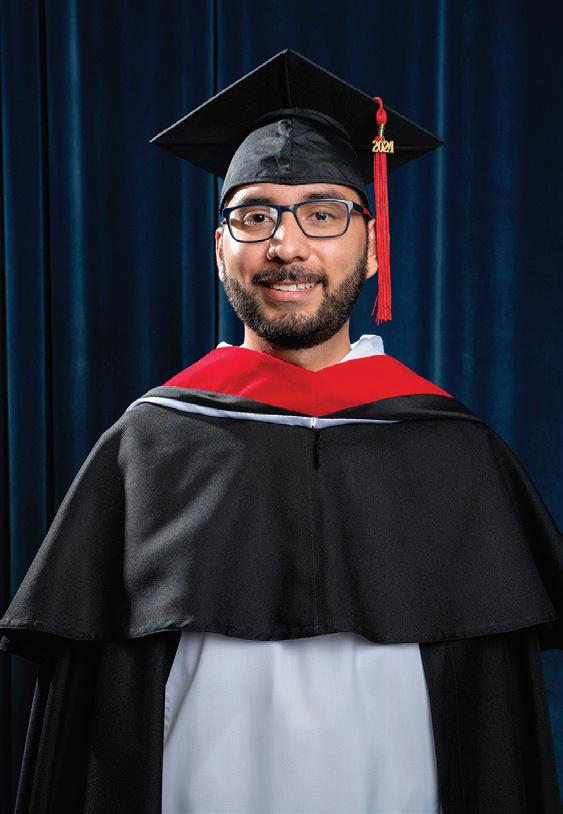
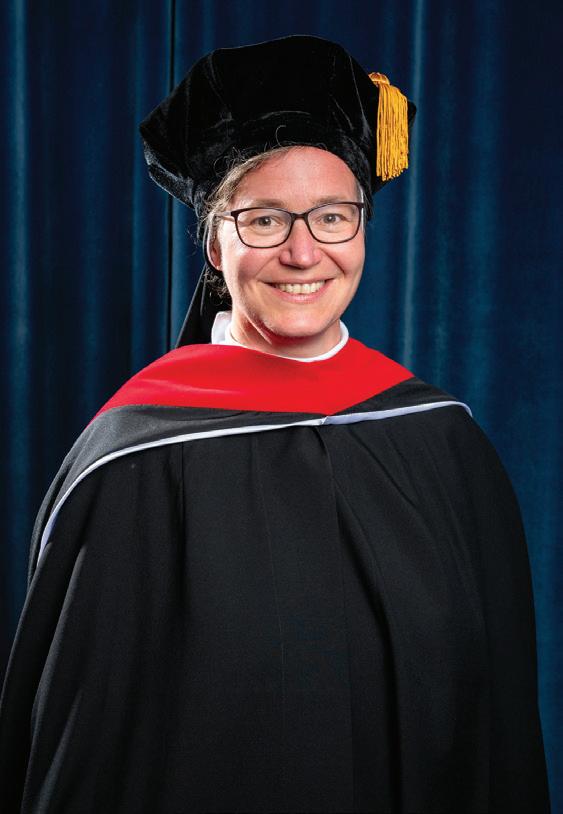
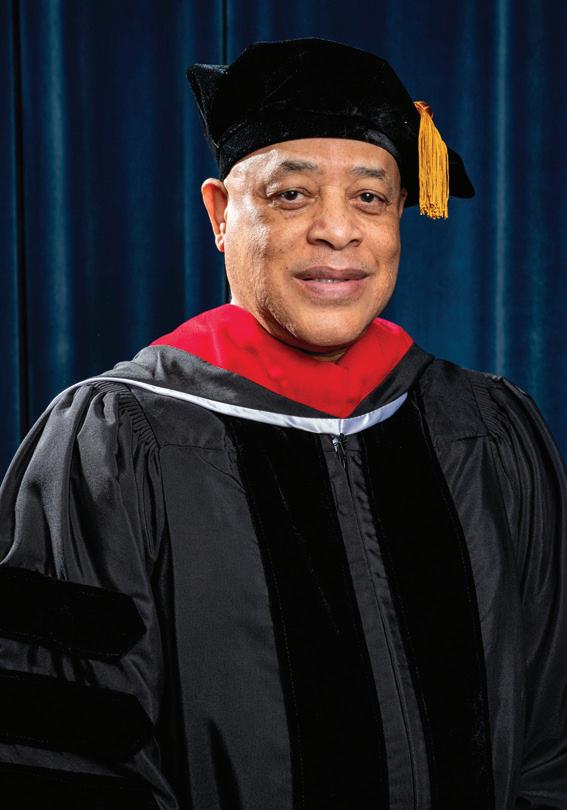
graduate reflection a graduate reflection a
What will stay with you most from Aquinas?
God’s sovereignty in leading me to a Catholic seminary to further His molding in my life. Completing my thesis on a topic that highlighted a unique portion of my spiritual journey.
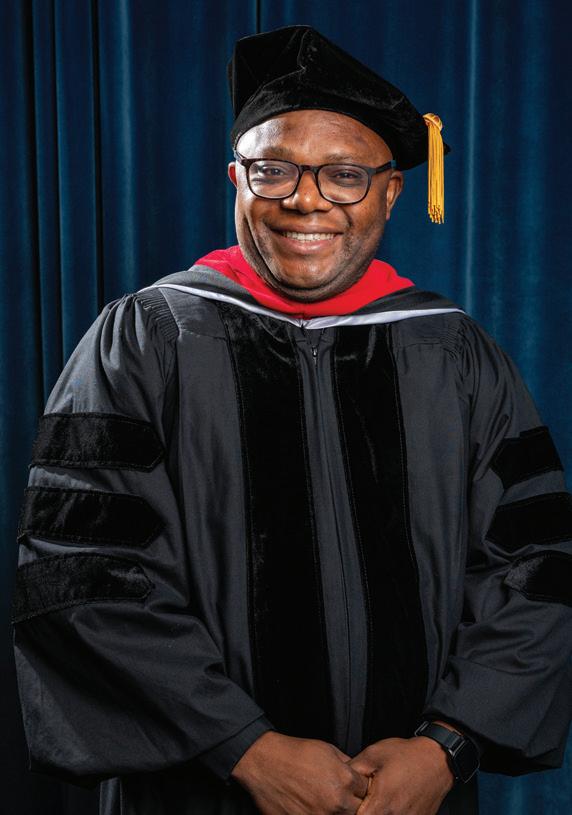
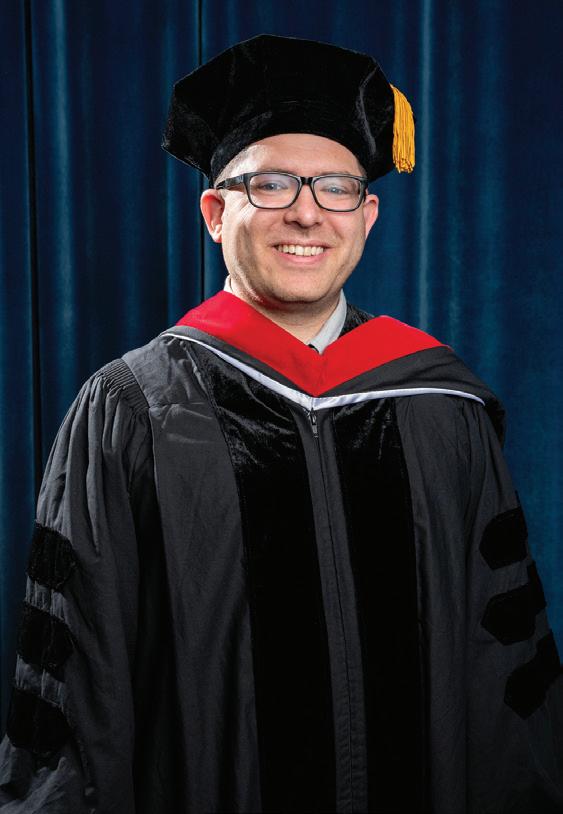
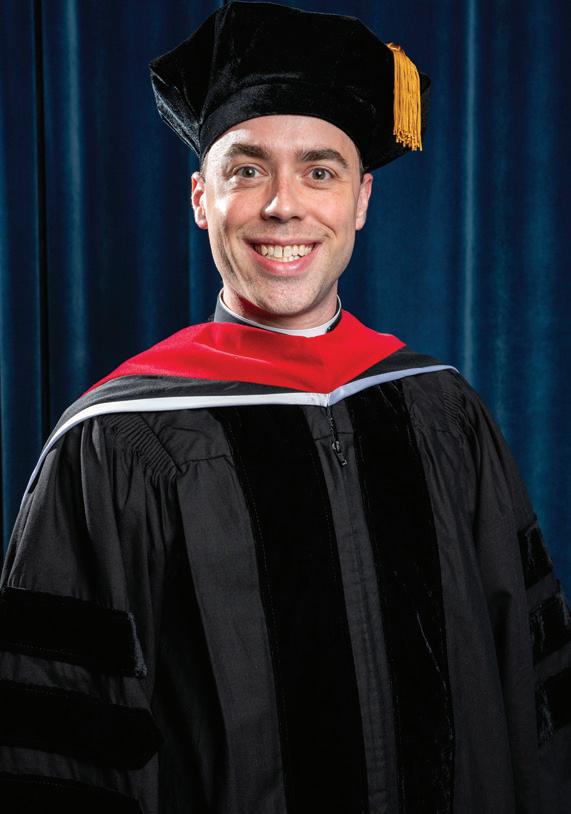
Favorite Memory?
I have a lot of favorite memories about Aquinas. The institute introduced me to studying in an intercultural, interdenominational, interracial environment. It was my first time to study with people of other denominations. I felt respected, loved, and cherished. I think of the invitations to go to the restaurants and eat sushi and other “strange” but good and excellent foods. I am happy for the great, well-educated, and seasoned lecturers who journeyed with us and brought out the best in us. The generosity of the staff and fellow students, who are always ready to bring out the best in me, remains in my memory.
Fr. Jude Thaddeus Langeh, CMF doctor of ministry in preaching
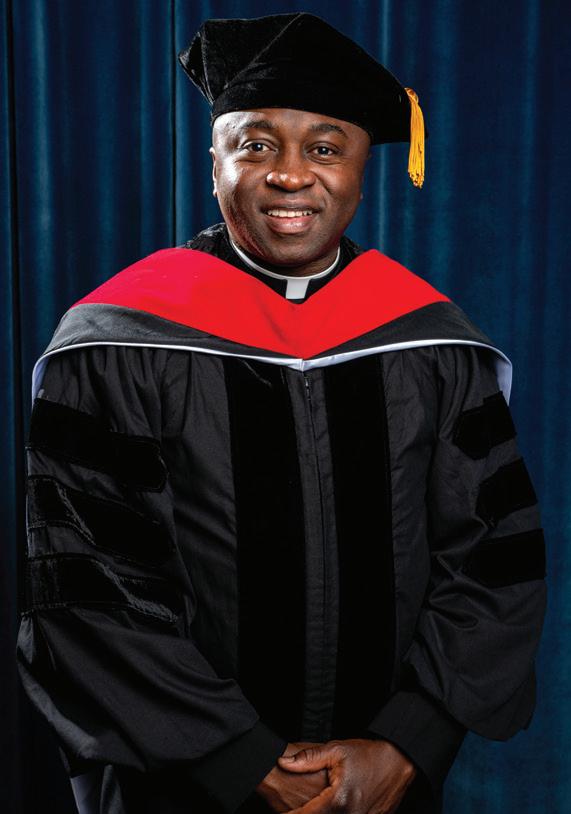
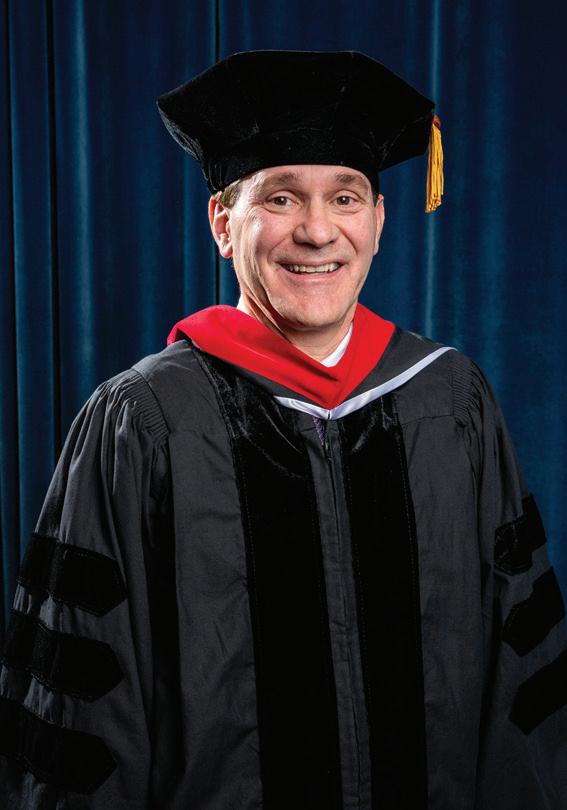

Why is community so important to Aquinas Institute of Theology? As Community is one of the pillars of Dominican life, we see that reflected in all we do here at Aquinas. We study as a community and from within a community of believers. We pray together as a community and we share the fruits of our contemplation within our community. We learn how to preach the Word in the context of our community for the sake of the world.
Time and again, students, alumni, faculty, and staff share how important the Aquinas community is to them. This is what often drives people to want to give back and support Aquinas Institute of Theology. In the world of fundraising and advancement, “Culture of Philanthropy” is an oft-used phrase. To many, calls for a “culture of philanthropy” is viewed as a thinly disguised call to “open up your wallet, give us your address book, and ask everyone you know for money.” However, at the core, creating a culture of philanthropy is the empowerment of the entire Aquinas community to invite others into the mission of Aquinas Institute of Theology.
The true essence of philanthropy is not large financial gifts. Rather, it is the cultivation of a spirit of generosity that seeks to uplift and support others. Every act of giving, whether it’s a monetary donation, volunteering your time and talents, or helping to connect Aquinas Institute with new friends, is a vital thread in the fabric of our community.
Your generosity, no matter the form it takes, makes a profound difference. Large donations certainly enable us to offer more scholarships, improve our facilities, or offer new programs and initiatives. Yet, the smaller gifts, given with love and intention, are equally powerful. They symbolize a shared commitment to our mission and demonstrate the importance of our mission to the life of the Church.
Think about the many ways you and other Aquinas community members contribute to our mission. Maybe it is a student greeting guests at an event, a board member connecting us with new professional friends, a long-time faculty member putting Aquinas in their will, a staff member making a modest monthly donation, or an alumnus serving on an advisory board. Each act, no matter how small, is a testament to the communal spirit that defines Aquinas. Your contributions, in all their forms, nurture and sustain our community.
The Aquinas community gives, knowing that our contributions are valued and impactful. We can see the fruits of our gifts in so many places. Perhaps it is when your parish receives a new pastor or pastoral associate with a solid grounding in theology, ministry, and leadership from Aquinas. Or it could be when your grandchildren have the opportunity to participate in Catechesis of the Good Shepherd at their parish or school. Maybe it is when you experience great preaching at a liturgy or on a retreat. These examples encourage you and others to continue supporting our mission. This creates a beautiful cycle of giving and receiving, where philanthropy becomes a natural and joyful expression of our communal life.
Thank you, Aquinas community, for building a strong culture of philanthropy that will continue to bear fruit long into the future. Together we will make it possible for Aquinas Institute to continue educating and forming men and women in the Dominican tradition to preach, to teach, to minister, and to lead.
Aquinas said good-bye to three professors last month. Fr. Jay Harrington, OP, is now in limited service while he pursues his scholarly writing and research in Minnesota. Sr. Sara Fairbanks, OP, was elected as Mission Prioress for Holy Rosary Chapter. She will be ministering to the infirm Sisters at their Motherhouse in Adrian, Michigan. Hsin-hsin Huang, PhD, has left full-time teaching at Aquinas due to familial obligations, although she will continue her work with lifelong ministry by being involved with the Center for Community Engagement and Evangelization.
A good-bye lunch was held on April 30 to see these amazing professors off to their new futures. Everyone at Aquinas administration, staff, and students wishes them all well and thanks them for their significant contributions to life at Aquinas!
Aquinas is proud to announce the ordinations of recent graduates Br. Matthew Paul Grote, OP, on Saturday, May 18, at St. Pius V Catholic Church in St. Louis, and Br. Carlos Angel Sotelo Salas, OP, on June 15, in Memphis, at St. Peter Catholic Church. We know the Aquinas community joins us in celebrating Father Grote and Father Salas! Fr. Matthew Paul, as a priest in the Province of St. Albert the Great (Central), has been assigned as parochial vicar at St. Vincent Ferrer Catholic Church in River Forest, Illinois, residing at the St. Vincent Ferrer Priory in River Forest. Fr. Carlos, as a priest in the Province of St. Martin de Porres (Southern) has been assigned as parochial vicar at Holy Ghost Catholic Church in Hammond, Louisiana, residing at the St. Martin Dominican Community in Hammond. Fr. Matthew Paul was also featured in an online interview on St. Patrick!
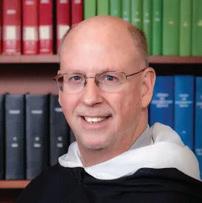
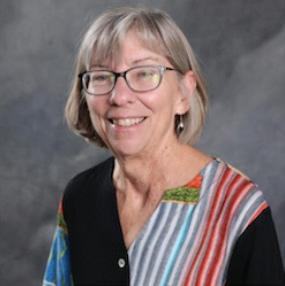
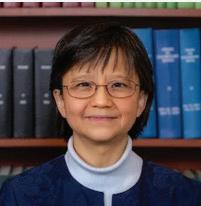
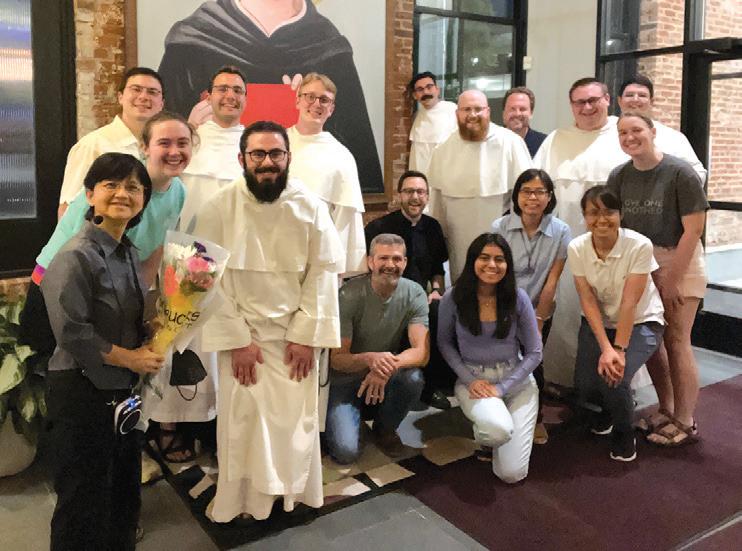
As reported in Crux, Aquinas alumnus Joseph Thermadom (MDiv ‘15) a priest of the Holy Cross Congregation, was ordained at Our Lady of Dolours Basilica in Thrissur, in the state of Kerala, India, by Archbishop Mar Andrews Thazhath on May 2, 2024 . Fr. Thermadom is deaf and speech impaired, and is the first deaf person to be ordained in India and the second in Asia. We celebrate Fr. Thermadom!
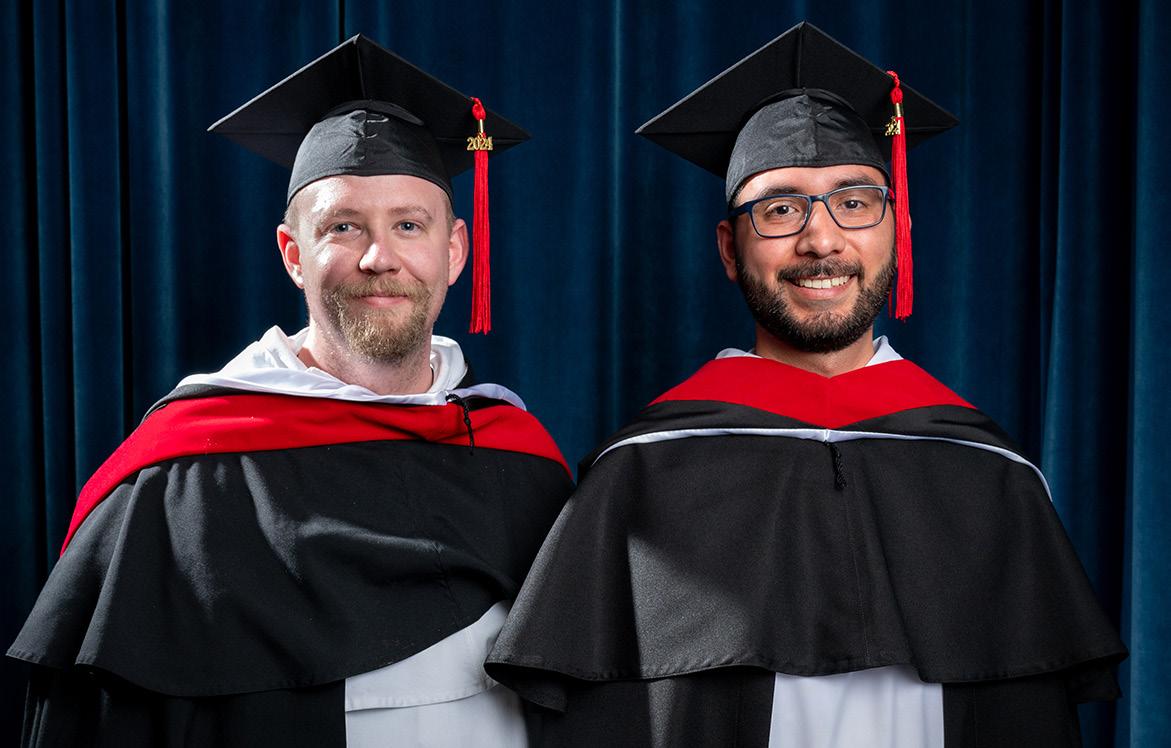
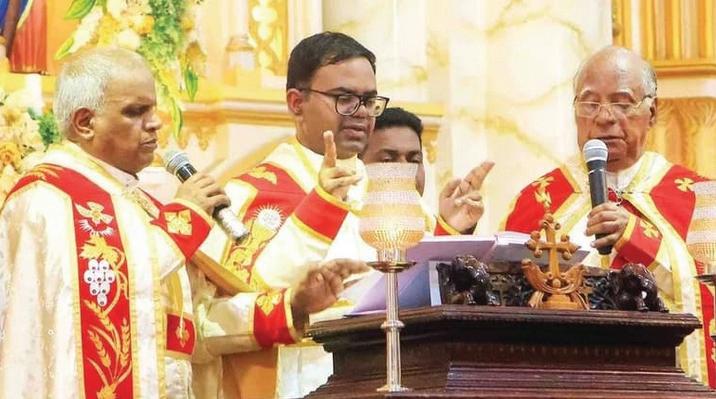
Manny Diaz (MDiv ‘24) is returning to his home state of Florida after having been accepted for a year-long residency in chaplaincy work at Tampa General Hospital in Tampa. After his residency, he hopes to continue working in a medical setting offering pastoral care to patients and families.

Sr. Raphael (Mary Rose) Bordages, OP (Non-degree ‘91)
November 20, 1921 - May 17, 2024
Born in Beaumont, Texas, Sister Raphael entered the Dominican Sisters of Houston in 1940. She earned a BA in English and Spanish at Dominican College, Houston. She completed advanced studies in Scripture and Theology at the University of St. Thomas in Houston, Aquinas Institute, and the Diocese of Beaumont, Texas. She served in education ministry for 50 years.
Fr. Michael C. Ruthenberg, OP (MDiv ‘88)
September 9, 1947 – May 3, 2024
Born in Detroit, Michigan, Father Ruthenberg entered the Order of Preachers in 1982 and studied for the priesthood at Aquinas Institute. He was ordained May 14, 1988 at the Basilica of St. Louis, King of France. He spent most of his ministry as a chaplain and then went into Limited Service at St. Pius V Priory in Chicago.
Jane Marie Sulze (MA ‘90)
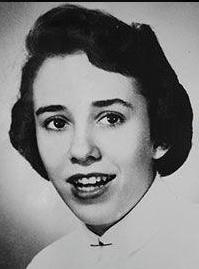
May 12, 1936 – April 4, 2024
Mrs. Sulze was a lifelong resident of Kirkwood, Missouri, and active in St. Peter Catholic Church, where her husband was a permanent deacon. She founded the 50+ Club at St. Peter, and she spent a lifetime in volunteering. She was known for knitting and giving away more than 100 prayer shawls.
Sr. Joan Markus, SSND (Graduate Certificate in Pastoral Care ‘04)

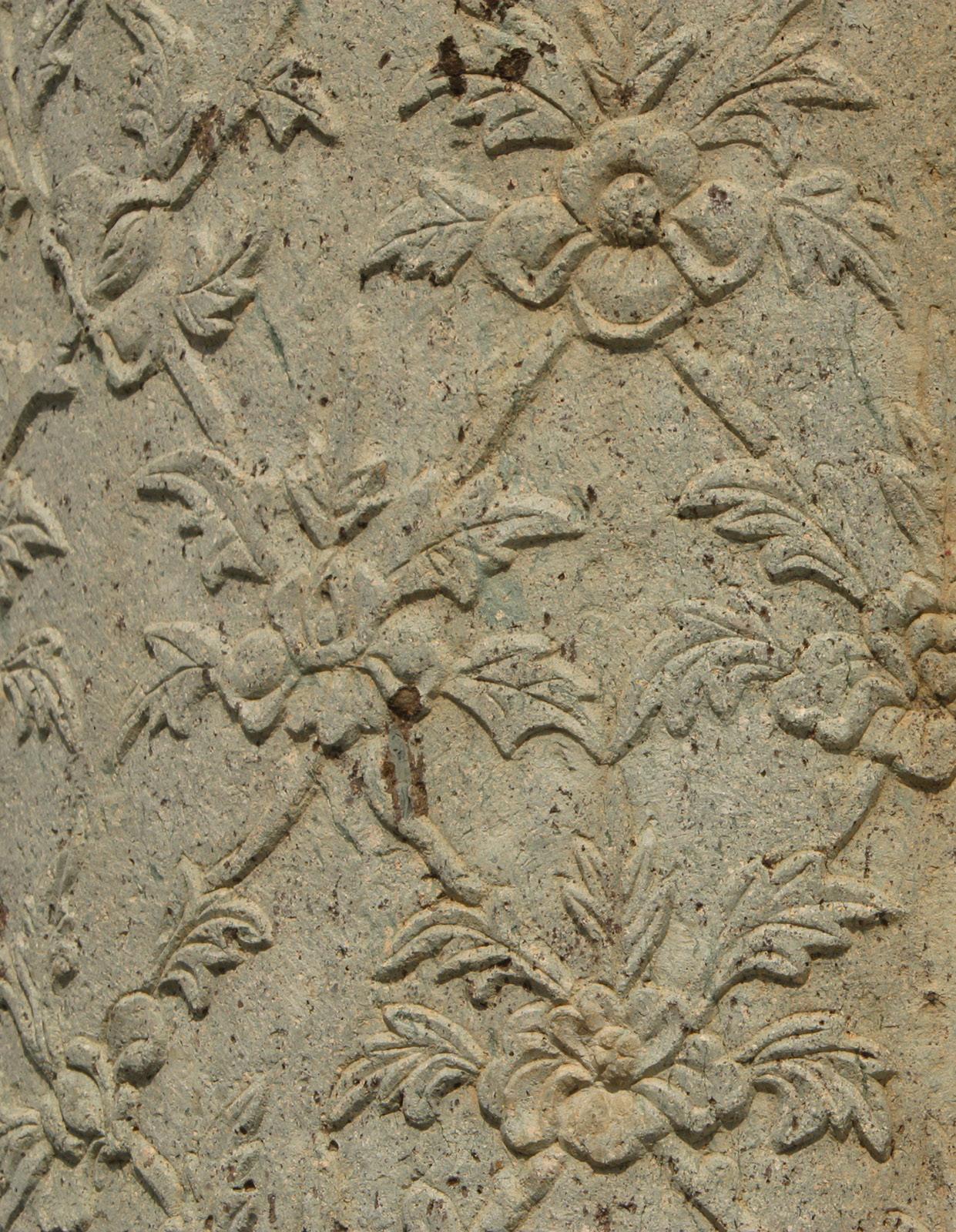
November 4, 1938 – February 28, 2024
Born a twin in Aviston, Illinois, Sister Joan and her twin, Sister Carol, along with their younger sister Theresa, all entered the School Sisters of Notre Dame. Sister Joan professed her final vows on July 31, 1964. She was a teacher, a director of religious education, and a provincial leader before serving two years as secretary to the General Superior in Rome.
Sr. Mary Pius Fagan, OP (Spiritual Direction ‘00)

January 3, 1936 – November 25, 2023
From Wilmington, Delaware, she entered the Dominican Congregation of Our Lady of the Rosary in 1954 and professed her final vows in 1961. In her time in St. Louis, Missouri, she was a chaplain at the St. Louis Detention Center, founder and director of Criminal Justice Ministry, and staff development/coordinator at Society of St. Vincent DePaul.
V: Out of the depths I cry to you, O Lord:
R: Lord, hear my voice!
V: Let Your ears be attentive to my voice in supplication:
R: If you, O Lord, mark iniquities, Lord, who can stand?
V: But with you is forgiveness, that you may be revered.
R: I trust in the Lord; my soul trusts in His word.
V: My soul waits for the Lord; more than sentinels wait for the dawn.
R: More than sentinels wait for the dawn, let Israel wait for the Lord,
V: For with the Lord is kindness and with Him is plenteous redemption.
R: And He will redeem Israel from all their iniquities.
R: Let us pray:
O God, Creator and Redeemer of all the faithful, grant to the souls of your servants and handmaidens the remission of their sins, that they may obtain by our loving prayers the forgiveness which they have always desired. You who live and reign forever. Amen
COMING SEPTEMBER 2024
the
Do you have an Alumni Update? Keep us up to date.
Support Aquinas give now!
With continued gratitude to the members of our Board of Trustees:
Daniel L. O’Brien Chair
Barbara Thibodeau
Vice-Chair
George Avila
Jennie Weiss Block, OP
Fr. Wayne Cavalier, OP
Fr. Vincent Dávila, OP
Fr. Augustine DeArmond, OP
Angie Doerr
Mary Etrick
Steve Givens
Mary L. Hill
Lucie F. Huger
Fr. Patrick Hyde, OP
Fr. Roberto Merced, OP
Fr. Louis Morrone, OP
Brian P. Reardon
Harry (John) Sauer
Br. Joseph Trout, OP
Kristin Tucker
Fr. John Rogers Vien
Fr. Mark Wedig, OP
Dr. Carolyn Wright
Brian Yanofchick